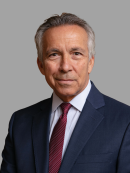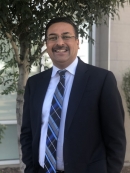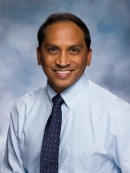
Divisions: Department of Surgery
Message from the Chief

The Acute Care Surgery Division is dedicated to caring for all patients with life-threatening surgical diseases. To that end, all patients at Robert Wood Johnson University Hospital with life-threatening surgical illnesses will be cared for by in-house ACS (Acute Care Surgery) faculty. The ACS Division continues to experience record-setting growth and ongoing success. All incoming Fellows can expect excellent and well-rounded education programs in our Surgical Critical Care Fellowship (ACGME Accreditation Council for Graduate Medical Education verified) and Acute Care Surgery Fellowship.
The Acute Care Surgery Division faculty is dedicated to teaching learners at all levels: medical students, residents, APPs, fellows, etc. The division has a formalized curriculum with over 10 hours of teaching weekly in addition to clinical teaching.
The educational efforts of the Trauma Center have also flourished with a new focus on simulation. New efforts are underway to add ASSET and ATOM courses to the current ATLS and TNCC courses already offered. All healthcare experts from pre-hospital to ICU were given opportunities to learn, discuss, and improve in an environment supported by the latest in simulation technology.
The Division of Acute Care Surgery is actively involved in clinical, translation, and Global Health research efforts.
The ongoing mission of the Division to offer cutting-edge clinical excellence in an atmosphere conducive to and supportive of educating the entire Acute Care Surgery Team has never been better realized.
Mayur Narayan, MD, MPH, MBA, MHPE, FACS, FCCM, FICS, FACT, FAIM
Professor of Surgery
Chief, Division of Acute Care Surgery
Trauma Medical Director
Faculty and Staff

Mayur Narayan, MD, MPH, MBA, MHPE, FACS, FCCM, FICS, FACT, FAIM, MAMSE | Robert Wood Johnson Medical School
Chief, Division of Acute Care Surgery, Professor of Surgery, Trauma Medical Director, and Program Director of the Acute Care Surgery Fellowship

Jenny Cai, MD, FACS
Associate Professor of Surgery and Director of Emergency General Surgery
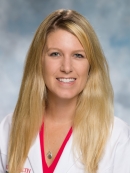
Rachel Choron, MD, FACS
Associate Professor of Surgery, Medical Director of the Shock Trauma ICU, and Program Director of the Surgical Critical Care Fellowship
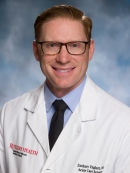
Zachary Englert, DO, FACS
Associate Professor of Surgery and Associate Trauma Medical Director
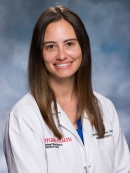
Joelle Getrajdman, MD
Assistant Professor of Surgery and Director of Acute Care Surgery Simulation
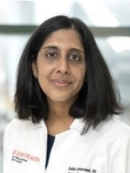
Julie Goswami, MD
Assistant Professor of Surgery and Associate Director of Rutgers Acute Care Surgery Research (RASR) Lab
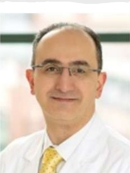
Joseph S. Hanna, MD, PhD, FACS
Associate Professor of Surgery, Associate Chief Quality Officer, RWJUH, and Assistant Dean of Quality, RWJMS
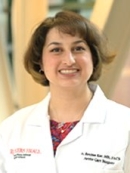
Anuradha Kar, MD, FACS
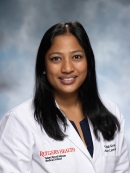
Crystal Kyaw, MD
Assistant Professor of Surgery and Lead Robotic Surgeon for Acute Care Surgery

Gregory Peck, DO, MPH, FACS
Associate Professor of Surgery and Associate Professor of Health Behavior, Society, and Policy
Emailpeckgr@rutgers.edu

Arianne Rayner, MD FACS

Michael Rodricks, MD

Amanda Teichman, MD, FACS
Associate Professor of Surgery and Director of Performance Improvement

Brian Wengerter, MD
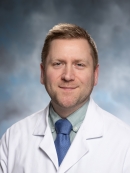
Daniel Whitley, MD
Rutgers Global Surgery
Global Surgery is an area of study, research, practice, and advocacy that seeks to improve health outcomes and achieve health equity for all people who require surgical care, with a special emphasis on underserved populations and populations in crisis. It uses collaborative, cross-sectoral, and transnational approaches and is a synthesis of population-based strategies with individual surgical care.
-Dare et al. (2014)
Global Surgery: defining an emerging global health field
Emergency and essential surgical diseases are neglected, and attention is needed for them to be an effective and affordable addition to the basic package of health care services. It's estimated that more than 5 billion people lack access to safe affordable surgical and anesthesia care when needed, primarily in low-to-middle-income countries (LMICs) (Global Surgery 2030). We believe that sustainable provision of emergency and essential surgical care and anesthesia is a critical part of integrated primary health care.
Our mission is to develop enriched multi-professional, intersectoral, and collaborative academic and research opportunities for aspiring public global health and policy opinion leaders in the surgical discipline. Towards this aim, the Latin American Indicator Research Collaboratory (LAIRC) has been created to leverage quantitative and qualitative data collection, analysis, and interpretations of the six core surgical World Development Indicators outlined by the Lancet Commission on Global Surgery.
Robert Wood Johnson Medical School (RWJMS) On-Campus Programs
-
The RWJMS Office of Global Health's Global Distinction Program provides medical students with growing interests in global health, and an opportunity to explore local and global population health research.
-
In 2016, RBHS and RWJMS introduced the Chancellor's Global Scholars Program. This longitudinal mentorship, scholarship, and educational program provides medical students an opportunity to conduct funded translational research for all four years before medical school matriculation.
Opportunities also exist in transnational experiences for both Rutgers and international students during their fourth-year elective rotations. A 1-month clinical or research rotation is feasible with the Rutgers Global Surgery team.
-
In 2016, the Rutgers School of Public Health established a Master of Public Health (MPH) with a dual focus on epidemiology and global health, allowing surgical residents in their mandatory investigational years to complete an MPH within global surgery and global injury fieldwork tracks.
Through this, residents can gain perspectives in systems and policy, epidemiology, biostatistics, environmental and occupational health, and more, with an emphasis on vulnerable populations.
-
Since 2015, the Rutgers Acute Care Surgery Fellowship was the first of its kind in the world to be approved by the American Association for the Surgery of Trauma (AAST), linking formal global trauma and acute care surgery training to world-renowned international faculty mentorship provided by Latin American Surgeons.
ACS fellows conduct international rotations in essential and emergency surgery, as well as trauma systems improvement, to broadly equip them for careers in acute care surgery globally.
-
Gregory Peck, DO, FACS
Assistant Professor of Surgery
Division of Acute Care Surgery
Director of Performance Improvement
Associate Director, ACS Fellowship
Associate Director, Trauma Program
Rutgers Robert Wood Johnson Medical School
Email: peckgr@rwjms.rutgers.eduAnjali Chhakkar, MBA
Program Assistant
Rutgers Biomedical and Health Sciences
Division of Acute Care Surgery
125 Paterson Street
Suite 6300
New Brunswick, NJ 08901
Robert Wood Johnson Medical School
Email: ac1841@rwjms.rutgers.edu
Office: 732 235 4959
Dept: 732 235 7766
Fax: 732 235 2964
Latin American Indicator Research Collaboratory (LAIRC)
Accordion Content
-
The Latin American Indicator Research Collaboratory (LAIRC) was established to address the call to action established by the Lancet Commission on Global Surgery (LCoGS).
Specifically, high-quality data collection, analysis, and interpretation of the LCoGS six core surgical indicators [now accepted as six surgical World Development Indicators (WDI)] are needed to assess, inform, and implement National Surgical, Obstetrics, and Anesthesia Planning (NSOAP) in Latin American and Caribbean countries in a transparent manner.
-
To facilitate cross-sectoral coordination and collaboration between Latin American/Caribbean and North American partners in global surgery, public health, policy, and ministries of health to activate this data collection and surgical systems strengthening through health systems research (HSR).
-
- A formalized partnership between Latin American/Caribbean and North American Institutions
- A research team led by two Primary Investigators (PIs), one from each partner institution
- Daily tasks/activities guided by two research fellows, one from each partner institution
- Performs on-the-ground data collection guided by the LAIRC toolkit and protocol
- The LAIRC toolkit will be available after signing the LAIRC Memorandum of Understanding
-
A steward and promoter of GSRU formation, relationships with peer GSRUs, and GSRUs' cumulative progress in WDI data collection, analysis and interpretation.
-
To apply, a prospective GSRU requires two partner organizations (one North American, one Latin American/Caribbean) with a PI and lead research fellow from each respective organization. If an applicant does not have a partner PI, we encourage a formal request to the LAIRC for partnership assistance to begin the process for a match.
Application to the LAIRC requires that interested parties complete the following to become a GSRU and acquire the LAIRC toolkit and protocol:
- A prospective GSRU may initiate the process of application to the LAIRC by submitting the LAIRC Memorandum of Understanding (MOU) declaring commitment to the terms of transparency, data quality, data sharing, and broader implementation of NSOAP
- Upon execution of the LAIRC MOU, each partner of the respective GSRU will receive the LAIRC toolkit, IRB research protocol, and REDCap Databases
- Before initiation of data collection, notification of an official IRB and/or ethics committee approval by both GSRU institutional partners of the LAIRC research protocol must be submitted to the LAIRC
-
Gregory Peck, DO, FACS or Joseph Hanna, MD, PhD, FACS
LAIRC Co-Chairs, c/o Division of Acute Care Surgery
125 Paterson St.
Suite 6300
New Brunswick, New Jersey 08901
United States
globalsurgery@rwjms.rutgers.edu
Clinical Programs
Accordion Content
-
The faculty from the Division of Acute Care Surgery lead three separate Intensive Care Units: Shock/Trauma ICU, Cardiovascular ICU, and Medical ICU at RWJ Somerset. All three services are run by a large multi-disciplinary team consisting of dedicated Advanced Practice Providers, critical care trained nursing staff, respiratory therapists, pharmacists, nutritionists, infection prevention, chaplains, palliative care, physical and occupational therapists, speech therapists, case managers, and social workers and the learners.
Ongoing educational efforts on the Critical Care Service are directed towards the RWJ medical students, residents from the Departments of Surgery, Anesthesia, and Emergency Medicine, fellows in Surgical Critical Care and Pulmonary Critical Care who rotate in the SICU, fellows in Maternal-Fetal Medicine, and fellows in Advanced Practice Provider Critical Care Fellowship.
The Surgical ICU takes care of patients from trauma, emergency general surgery, surgical oncology, colorectal surgery, general surgery, transplant surgery, ENT, and other non-cardiac surgical patients. The unit operates with multiple evidence-based protocols that were designed to improve patient care, improve communications within the provider teams, and provide consistency in practice patterns amongst all the intensivists.
These protocols include Ventilator Management and Weaning, Communication, Nutrition, GI Prophylaxis, Venous thromboembolism Prophylaxis, Sepsis, Traumatic Brain Injury, and Sedation.
-
The Trauma Program is one of the three pillars in the Division of Acute Care Surgery. Robert Wood Johnson University Hospital is an American College of Surgeons verified Level 1 Trauma Center. Faculty in the Division are all board-certified, and fellowship-trained and provide 24/7/365 coverage of the Level 1 Trauma Center.
Over the past several years, the trauma program has undergone dramatic growth, caring for over 3600 injured patients annually. Dedicated outreach and education to local and regional Emergency Medical Services and referring hospitals are responsible for the increase in the utilization of the Trauma Center.
The RWJUH Level 1 Trauma Center is a mature trauma system with standardized patient care methods such as multidisciplinary hemorrhage control in Hybrid OR, surgical fixation of rib fractures, direct peritoneal resuscitation, ROTEM-guided resuscitation, and more. The System is also supported by a full complement of the Performance Improvement Director, a Coordinator, and 5 dedicated Registrars.
Patient care is provided by a true collaborative multidisciplinary team involving advanced practice providers, fellows, residents, and students, led by the ACS faculty, PM&R, social workers, case managers, physical therapy, occupational therapy, speech therapy, and palliative care.
-
The Emergency General Surgery Program is another pillar in the Division of Acute Care Surgery. In keeping with our dedication to caring for all patients with life-threatening surgical diseases, our surgeons tackle complex emergent pathologies in hernia, foregut, hepatobiliary-pancreas, oncologic, soft tissue, vascular, and more.
The ACS faculty collaborates closely with various surgical specialists in these cases. The Emergency General Surgery service performs over 1000 major operative cases yearly. The volume is growing every year.
The service also has a developing Quality/Performance Improvement Review Program. We strive to be an American College of Surgeons Emergency General Surgery Verified Program in the next few years.
Research
Currently, the Research Section of Acute Care Surgery is active in 3 major areas of research: Clinical Research, Outcomes Research, and Basic Science/Translational Research. Each of these unique academic endeavors helps improve our understanding of the clinical problems we encounter and better enables us to treat our patients now and in the future.
Clinical Studies focus on the patients we encounter every day. We are involved in both nationwide multi-institutional research through various surgical societies and also industry-sponsored studies, which bring new products and techniques to the bedside. All ongoing clinical studies have been thoroughly evaluated and approved by the UMDNJ Institutional Review Board to assure the greatest degree of safety and integrity in this research.
Outcomes Research utilizes large local and national databases, such as the National Trauma Data Bank and others, to investigate broad questions on a large scale. These studies help physicians understand if certain techniques are successful over time or if certain care measures are cost-effective. The Division of Acute Care Surgery partners with other sections and departments in assembling a team to investigate these questions.
Lastly, our efforts in Basic Science/Translational Research focus on understanding the molecular and genetic mechanisms behind inflammation, sepsis, and other complications of “acute illness.” These efforts are partnered very closely with the ongoing work that continues in the laboratory of the late Dr. Stephen Lowry – an eminent researcher and academic surgeon – known worldwide for his discoveries and contributions in this area. These studies often involve healthy volunteer subjects and our group’s highly regarded “Human Endotoxin Model.”
We endeavor to share our research findings with the medical community through publication in major academic journals, presentations at surgical society meetings, and through our teaching efforts with the medical students and residents of the UMDNJ Robert Wood Johnson Medical School.
Research Committee
The Division of Acute Care Surgery Research Committee was developed to coordinate, supervise, and conduct basic science and clinical research in the areas of Trauma, Emergency Surgery, and Surgical Critical Care. This multi-disciplinary committee is made up of a core group of Acute Care Surgeons and Fellows, as well as Advanced Practice Nurses and Research Coordinators. Attendance at our monthly meetings is open to all interested Residents and Medical Students.
Researchers in the Division of Acute Care Surgery (ACS) meet every third Thursday of the month. During this time, new ideas for clinical and basic science research are reviewed by the group and either approved for submission or recommended for modification to strengthen the proposal before submission to the IRB. Each investigator reports on the progress of his or her primary projects, eliciting the help of collaborating investigators when appropriate. Members are encouraged to submit completed abstracts and manuscripts to all peer-reviewed journals and national meetings, and travel to these meetings is subsidized by the Division.
Since 2011, the efforts of the ACS Research Committee have resulted in three manuscripts accepted to peer-reviewed medical journals, as well as four poster presentations and one podium presentation at national meetings. Members regularly attend the annual meetings of the Eastern Association for the Surgery of Trauma (EAST), the Western Trauma Association (WTA), the American Association for the Surgery of Trauma (AAST), the Society of Critical Care Medicine (SCCM), and the Surgical Infection Society (SIS). Ongoing research topics include retrospective clinical research, randomized clinical trials, clinical outcomes research, and basic science and inflammation.
Contact Us
Division of Acute Care Surgery - Academic Office
Rutgers Robert Wood Johnson Medical School
125 Paterson Street, Suite 6300
New Brunswick, New Jersey 08901
Phone: 732-235-7766
Fax: 732-235-2964
Clinical Office
Robert Wood Johnson Medical Group
Clinical Academic Building
125 Paterson Street
4th Floor, Suite 4100
New Brunswick, New Jersey 08901
Phone: 732-235-7766
Robert Wood Johnson University Hospital
1 Robert Wood Johnson Place
New Brunswick, New Jersey 08901
Phone: 732-828-3000
www.rwjuh.edu
Message from the Chief
The Cardiac Surgery Division at Robert Wood Johnson Medical School is based on innovation, quality, and volume. We have been amongst the market leaders in the United States for volume with roughly 1000 open heart procedures being performed every year, with consistently excellent results.
We offer novel techniques in the treatment of adult cardiac surgery including; minimally invasive valve repair and replacement (both aortic and mitral valves), hybrid revascularization procedures, repair of thoracic aortic aneurysms including thoracic endovascular aneurysm repair (TEVAR), cardiac transplant, cardiac assist devices including LVAD (bridge to explant, bridge to transplant, and destination therapy), CABG, off-pump CABG, and transcatheter aortic valve replacement (TAVR-replacement of the aortic valve through small incisions in the groins). We also offer novel transcatheter valve therapies through clinical trials for patients with valvular disease who are not candidates for traditional open-heart surgery.
We are dedicated to the most advanced, innovative techniques and devices to aid in the optimal care of our patients. The keen collaborative spirit between our surgeons and the referring physician community ensures the best outcome for our patients. Being an academic medical center, we utilize and employ evidence-based medicine to guide all standards of care within our specialty while continuing to be leaders at the forefront of academic medicine.
Mark Russo, MD
Chief, Division of Cardiac Surgery
Faculty

Ioannis Kontopidis, MD
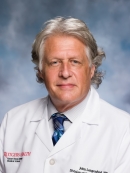
John Langenfeld, MD
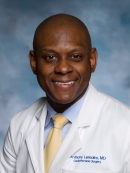
Anthony Lemaire, MD
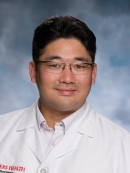
Manabu Takebe, MD
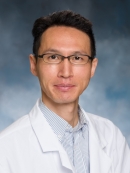
Hirohisa Ikegami, MD
Clinical Services and Trials
Division of Cardiac Surgery
For individuals in need of a transcatheter aortic valve replacement, membership into the advanced heart failure and transplant cardiology program, information on trials, or more details, please visit the Division of Cardiac Surgery's provider page.
Transfer Center
Our physicians are not only leaders in patient care but also in the high-powered research that develops and defines the art of medicine. Our center uses the newest cardiovascular diagnostic tests and medical, surgical, and device therapies and is easily accessible via the Cardiac Emergency Center, RWJUH Admitting, or Transfer Center (with ground or air transport for patients with and without intra-aortic balloon support).
The Heart Center of New Jersey can accept and treat your patients with optimal services. Physicians can transfer patients from any hospital in the tri-state area by calling our 24-hour Transfer Center at 1-800-22-RWJUH.
Make an Appointment
All cardiac patients should be referred by a cardiologist. Specific referral requirements are dependent upon a patient's insurance carrier.
Appointment Phone
(732) 235-7800 - Cardiac Surgery
Office Hours
8:00 a.m. - 4:00 p.m.
Office Locations
Cardiac Surgery
Clinical Academic Building
4th Floor, Suite 4100
Message from the Chief
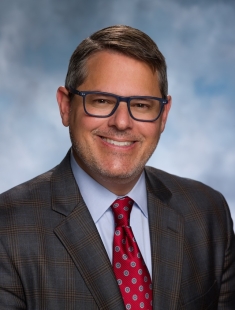
The Division of Colorectal Surgery at Robert Wood Johnson University Hospital is committed to delivering the highest level of comprehensive colorectal care. All our surgeons have completed advanced fellowships specifically in Colorectal Surgery and are board-certified.
In our Division, care is individualized based on the unique complexity of each patient. Patients are managed using a multi-disciplinary approach that coordinates care between gastroenterology, radiology, oncology, urology, and gynecology, as needed.
Our Colorectal Surgery practice cares for more IBD patients than any other surgical practice in New Jersey. We routinely evaluate patients with complex Crohn’s Disease and medically refractory Ulcerative Colitis and work closely with treating gastroenterologists to optimize the care of these patients.
Daniel Feingold, MD, FACS, FASCRS
Chief, Division of Colorectal Surgery
Faculty
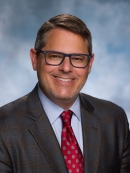
Daniel Feingold, MD, FACS, FASCRS

Nell Maloney Patel, MD, FACS, FASCRS
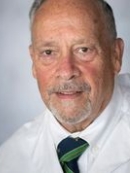
Theodore Eisenstat, MD, FACS, FASCRS
Professor of Surgery
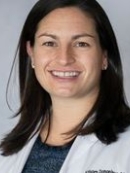
Kristen Donohue, MD, FACS
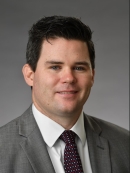
Brendan Scully, MD
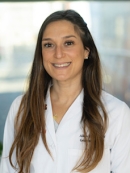
Aliza Galitsky, MSN, APN, CWOCN
Advanced Practice Nurse
Areas of ExpertiseCertified Wound Ostomy and Continence Nurse
Staff
Program Supervisor
Lauren Ramos, CMA
Program Supervisor
(732)235-5581
lg605@rwjms.rutgers.edu
Clinical Staff
Catherine Egan, LPN
Supervising LPN
Nurse to Dr. Nell Maloney Patel,
Dr. Daniel Feingold and
Aliza Galitsky, MSN, APN, CWOCN
(732)235-4280
eganca@rwjms.rutgers.edu
Dyshira Wade, LPN
Nurse to Dr. Kristen Donohue and
Dr. Brendan Scully
(732) 235-7867
dw581@rwjms.rutgers.edu
Administrative Staff
Elisa Aquino
Patient Access Representative
(732)235-8845
ea418@rwjms.rutgers.edu
Corey Yoder
Patient Access Representative
(732)235-8845
cy390@rwjms.rutgers.edu
Keisha Campbell
Assistant to Dr. Nell Maloney Patel
Dr. Daniel Feingold and
Aliza Galitsky, MSN, APN, CWOCN
(732)235-8459
ksalmon1@rwjms.rutgers.edu
Joan Perez
Assistant to Dr. Kristen Donohue and Dr. Brendan Scully
(732)235-6138
jp2347@rwjms.rutgers.edu
Services We Provide
Accordion Content
-
- Anorectal maladies (abscess, anal cancer, fissure, fistula, hemorrhoids, rectal prolapse, etc.)
- Colon cancer/Rectal cancer
- Colonic inertia
- Complex fistulas (rectovaginal, colo-vesicular, peri-anal, etc.)
- Diverticulitis
- Inflammatory bowel disease (Crohn’s disease, Ulcerative colitis, Indeterminate colitis)
- Patients desiring colostomy reversal (Hartmann reversal)
- Pilonidal disease
- Polyps requiring advanced endoscopy techniques or surgery
- Radiation proctitis
-
Prioritizing Patients in Need
Patients with peri-anal pain and patients newly diagnosed with colorectal cancer are offered appointments the same day or the following day (“no wait” policy).
Offering Advanced Surgical Interventions
-
Over 80% of our resections are completed using laparoscopic/robotic approaches
-
We have broad expertise in colorectal cancer resections and surgery for Inflammatory Bowel Disease and diverticulitis
-
We are a quaternary referral center for complex colorectal problems – over a third of the patients we operate on were seen as a second opinion
-
We encourage sphincter-preserving approaches emphasizing stoma avoidance
-
We offer a novel, muscle-sparing approach to managing chronic anal fissures
Outlining an Enhanced Recovery Pathway
With this approach, post-operative patients have a lower risk of surgical site infection, shorter hospital stays, less pain, and quicker return to baseline level of functioning.
Using Multi-modal Analgesia
As a group, we take post-operative pain control very seriously. We routinely utilize state-of-the-art regional nerve blocks (e.g., TAP and erector spinae blocks) using long-lasting, extended-release pain medications and non-narcotic pain medications as well as Gabapentin/pregabalin. Opioids are minimized to the extent possible.
Providing Personalized Comprehensive Cancer Care
All cancer patients are presented and reviewed at the weekly multi-disciplinary tumor board at Rutgers Cancer Institute of New Jersey and care plans are individualized based on the high-level discussion. As New Jersey’s only NCI-designated Comprehensive Cancer Center, patients have access to the most advanced treatment options including clinical trials, precision medicine, and immunotherapy.
-
-
Outpatient clinic visits are available Monday through Friday at:
The Clinical Academic Building
125 Paterson Street
4th Floor
New Brunswick, NJ 08901Or
RWJ Barnabas Hospital at Somerset
The Steeplechase Cancer Center
30 Rehill Avenue
Somerville, NJ 08876
To schedule a new patient appointment or to contact one of our providers, please call 732-235-8845 -
Aliza Rubin is a national and board-certified Adult-Geriatric Primary Care Nurse Practitioner who has been at Rutgers for over 7 years. She works collaboratively with the Colon and Rectal Surgeons providing care for a variety of benign anorectal conditions. Aliza is nationally certified in Wound, Ostomy, and Continence Nursing and is working on increasing access for Ostomates to care and support.
She takes pride in her ability to utilize the caring and holistic approach of nursing and translate that into a pleasant, patient-centered provider approach. Aliza received her Bachelor of Science in Nursing and Master of Science in Nursing from Rutgers University and graduated with honors. She went on to work as a staff Nurse at Virtua Health on an acute surgical care unit while obtaining her Master of Science in Nursing.
She is a board-certified Nurse Practitioner through the American Academy of Nurse Practitioners and a board-certified Wound, Ostomy, and Continence Nurse. She is an active member of the American Academy of Nurse Practitioners, the New Jersey State Nurses Association, and the American Nurses Association.
Examples of ostomy support needs offered are:
- Skin breakdown
- Leakage
- Poorly fitting appliance
- Stoma markings
- Pre and post-operative education
- Support groups
Patient Information & Resources
Contact Us
Lauren Ramos
Program Supervisor
Phone: 732-235-8845
Fax: 732-235-8037
The Clinical Academic Building
125 Paterson Street
4th Floor
New Brunswick, NJ 08901
RWJ Barnabas Hospital at Somerset
The Steeplechase Cancer Center
30 Rehill Avenue
Somerville, NJ 08876
***And Coming Soon***
We will be welcoming our patients at our new location.
The Ambulatory Medical Pavilion
210 Somerset Street, 5th Floor
New Brunswick, NJ 08901
Message from the Chief
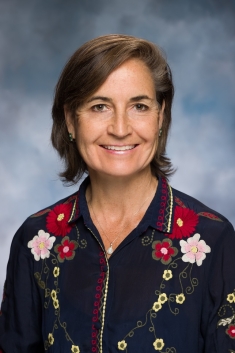
At the Division of General Surgery, we are committed to providing compassionate, patient-centered care with a focus on delivering the highest quality outcomes. Our team of highly skilled surgeons specializes in treating a wide range of conditions, including esophageal diseases such as achalasia, GERD, hiatal hernia repairs, and other swallowing issues, as well as performing complex hernia repairs, gallbladder surgeries, and breast disease treatments.
Recently, our surgeons and hospital facility achieved accreditation from the Surgical Review Corporation (SRC) as a Center of Excellence in hernia surgery, as well as minimally invasive surgery. This prestigious accreditation recognizes RWJUH's commitment to maintaining the highest standards of quality patient care and safety. As an accredited Center of Excellence, we meet both nationally and internationally recognized standards, ensuring that our patients receive the best possible care.
With expertise in the latest advanced minimally invasive techniques and robotic surgery, we offer cutting-edge care tailored to meet each patient’s unique needs. Whether you are seeking treatment for a specific condition or require a comprehensive surgical approach, our dedicated team is here to support you on your journey to health and healing.
Susannah S. Wise, MD
Associate Professor of Surgery
Assistant Dean of the Learning Environment
Division Chief, General Surgery
Faculty
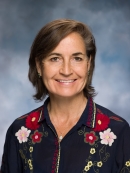
Susannah S. Wise, MD
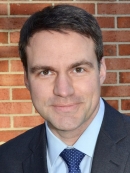
Dylan Nieman, MD
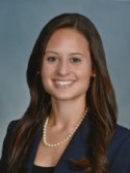
Victoria Needham, MD
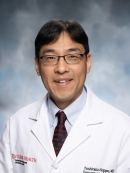
Toshitaka Hoppo, MD
Contact Us
For appointments and all general inquires
732-235-7920
Message from the Chief
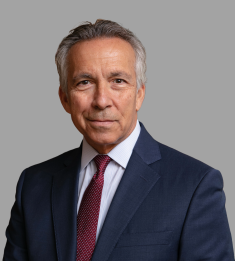
When your child requires surgery, you want to have the very best care available and choose an environment that provides a comprehensive pediatric experience for your child and your entire family. It's essential to consult with a surgeon who is qualified and experienced in operating on children.
The pediatric surgeons of Rutgers Health and Robert Wood Johnson Medical School operate on children from the newborn stage through the teenage years, are all board certified in general surgery and pediatric surgery (to learn more about board certification, please click here), and have trained at many of the nation’s leading pediatric centers. Our surgeons operate at The Bristol-Myers Squibb Children’s Hospital at Robert Wood Johnson University Hospital, a leading pediatric facility that is the only freestanding tertiary pediatric hospital in the state.
Our mission is to provide the highest quality, modern, state-of-the-art pediatric surgical care for your child in the safest possible environment, while always keeping the family at the center of our approach. Additionally, we strive to train medical students and residents in becoming the next generation of pediatric surgeons, all while ensuring that they learn in a closely supervised and safe environment.
Parents today desire and deserve the most reliable information about their child’s condition. We are always here to answer all of your questions regarding issues, options, and expectations.
Steven Stylianos, MD
Division Chief
Surgical Services
Accordion Content
Our pediatric surgical services provide expert care for a wide range of conditions, from routine procedures to complex issues like congenital abnormalities, pediatric oncology, vascular access, chest deformities, adolescent bariatric surgery, and pediatric trauma, with a focus on customized and compassionate care for children and adolescents.
-
Routine and relatively straight-forward procedures are performed in a same-day surgery setting, with parents often staying with their children throughout the entire process. These procedures include:
- Hernia repair
- Correction of undescended testicles
- Excision of neck lumps
- Removal of skin cysts
-
Life-threatening congenital abnormalities of the abdomen and chest often require surgery in the newborn period. These are frequently diagnosed in utero, allowing for prenatal counseling and planning. Early detection enables our medical team to prepare for immediate intervention before and after birth.
-
Providing expert surgical treatment for a vast range of childhood tumors, we work in conjunction with Rutgers Cancer Institute as part of a comprehensive children’s cancer team that includes pediatric oncologists, radiologists, radiotherapists, and social workers. Our collaboration is focused on optimal results for young patients, with careful attention to the emotional well-being of children and parents.
-
Catheters are placed for long-term intravenous access for cancer patients and hyperalimentation, or total parenteral nutrition, for children who are not fed for long periods of time. Our experienced team performs these procedures with meticulous care and precision on our young patients.
-
Children can develop chest wall conditions where the chest either protrudes outward or sinks inward. Our team tailors treatment plans, including non-surgical and surgical options, to address the specific needs of each child.
-
Through specialized minimally invasive surgical techniques, we offer treatments that lead to significant weight loss and improvement in related conditions, such as high blood pressure, lipid disorders, sleep apnea, and others. Our program is proudly recognized by the American College of Surgeons Metabolic and Bariatric Accreditation and Quality Improvement Program as an Accredited Center for Adolescent Bariatric Surgery.
-
Our expert trauma team, including three skilled pediatric surgeons and the adult trauma service, provides comprehensive care for all types of multiple trauma patients. With ambulance and helicopter services available and a fully equipped pediatric ICU, we offer the highest level of care in critical situations and give medical students hands-on experience in a real-world trauma setting. For splenic and hepatic injuries, we take a conservative treatment approach. We're honored to be recognized by the American College of Surgeons Committee on Trauma as an Accredited Pediatric Trauma Center, reflecting our commitment to excellence in pediatric care.
Clinical Services
For more information about the Division of Pediatric Surgery's clinical programs, visit the department's website:
Adolescent Obesity and Foregut Surgery Program
Welcome to the Rutgers Adolescent Obesity and Foregut Surgery Program. We understand that weight-reduction surgery is a huge commitment to a new, healthy lifestyle, and Rutgers Adolescent Obesity and Foregut Surgery Program is dedicated to supporting you through each step of the process, from your initial questions and consideration of weight-loss surgery, through the steps you’ll take to prepare, to the actual procedure and beyond.
Over the coming months, you’ll have the opportunity to attend information sessions, support groups, and one-on-one meetings with our multidisciplinary team to ensure you are ready for your weight-loss surgery and the changes it requires.
We know it can appear daunting. Far from a “quick fix,” weight-reduction surgery requires dedication and commitment on your part to the types of permanent lifestyle changes that will help ensure you can keep the weight off and stay healthy. It involves significant diet modifications, ongoing nutritional supplements, and regular exercise, among other changes.
Most important, however, is long-term follow-up after the surgery. Our team will partner with you on your weight-loss journey, and these follow-up visits are essential in helping us evaluate your progress, identify any concerns, and achieve your goals.
We’re here for you. Though it takes hard work, you won't be on your own. If you have questions at any time, please don’t hesitate to call us at 732-235-7821 or email adolescentbariatrics@rutgers.edu.
We greatly appreciate your choosing us for your care team, and look forward to working with you, now and in the future.
Calculating BMI
BMI is calculated the same way for adults and children, based on the following formula:
Weight (in pounds)/(height [in inches])2 x 703
For more details on calculating BMI, visit the CDC's BMI calculators:
Frequently Asked Questions About Bariatric Surgery
-
Q: What is bariatric surgery, and how does it work?
A: Bariatric surgery, also referred to as weight-loss surgery, is a type of surgery that helps individuals lose weight by making changes to the digestive system. These types of operations may involve making your stomach smaller, and limiting the amount of food or drink you can consume at one time, so you feel full sooner. Other procedures involve changes to the small intestine, reducing the number of calories your body can absorb.
Q: Are there different types of bariatric surgery?
A: There are several different types of bariatric surgery, including Roux-en-Y gastric bypass and sleeve gastrectomy (gastric sleeve surgery). In gastric bypass surgery, the surgeon staples the upper section of your stomach, creating a small pouch.
Your small intestine is then divided into two parts — the lower part is attached directly to the small stomach pouch, while the upper part of the small intestine is reconnected farther down. In gastric sleeve surgery, a surgeon removes most of your stomach, leaving a banana-shaped section that reduces the amount of food that can fit in your stomach, making you feel full sooner.
Q: Which bariatric procedures do you offer at Rutgers Adolescent Obesity and Foregut Surgery Program?
A: We currently offer Roux-en-Y gastric bypass and sleeve gastrectomy.
Q: How do I know if I’m a candidate for bariatric surgery?
A: In general, guides recommend being evaluated for surgery by a multidisciplinary team with expertise in pediatrics if individuals have either a BMI of 40 or above; or if they have a BMI of 35 or more with serious obesity-related health problems, such as type 2 diabetes or severe sleep apnea.
However, other factors also play a role in determining whether bariatric surgery is the right option—for example, age, smoking habits, and any prior surgeries. You must have tried multiple other weight-loss methods in the past, and a psychological evaluation is also taken into consideration.
You also must be committed to lifelong changes in dietary, exercise and medical routines, as well as surgical follow-up care. Our team will work with you to determine whether bariatric surgery is an appropriate option.
Q: Does my age prevent me from being considered for bariatric surgery?
A: Weight-loss surgery may be an option for adolescents and teens who have severe obesity and obesity-related health problems. We have performed bariatric surgery on patients of varying ages.
Q: Is bariatric surgery an easy solution for weight loss?
A: Bariatric surgery should not be considered a “quick fix” to weight problems. It is a lengthy transformation process that starts many months before surgery takes place and that requires a strong commitment to lifestyle changes that will need to be continued for life. It takes a lot of dedication, patience, and work.
Q: Is bariatric surgery safe?
A: Bariatric surgery has been found to be a safe way to achieve weight loss; however, as with all surgical procedures, there are risks. You should be familiar with the risks associated with your specific bariatric procedure before signing consent for surgery.
Q: What are the side effects of bariatric surgery?
A: Side effects are varied and may include bleeding, infection, leaking from the site, diarrhea, and blood clots. Rarely, surgery-related problems can lead to death.
Other side effects may occur later, including nutritional issues related to the body’s inability to absorb enough nutrients; strictures; hernias; and gallstones as a result of rapid weight loss.
Q: What if I’ve already had bariatric surgery? Are there other options?
A: Surgical options may be available if you’ve already had bariatric surgery and gained significant weight afterward. Not everyone is a good candidate for those procedures, however. Our surgeon can discuss these options with you to determine whether any would be good for you.
-
Q: How long is the process before the actual bariatric surgery procedure?
A: It usually takes six months from the time of your first information session to the actual date of surgery. The length of time depends on how long it takes to complete all the necessary preoperative testing and appointments, as well as any insurance requirements.
Q: What is a six-month supervised diet? How do I know if I need one?
A: Many insurance companies require prospective bariatric surgery patients to have undergone a six-month, medically supervised weight-loss program focused on their diet. This program involves six consecutive monthly meetings in which a physician monitors your progress.
If a meeting is missed, you would need to do an additional six consecutive months of the supervised diet. During our team’s initial contact with your insurance company, we will help you determine whether this is required as part of your policy.
In addition, if you have had a limited number of previous weight-loss attempts, our program also may require you to complete this process. You will discuss this during your first appointment with the registered dietitian.
Q: Do I need a psychological evaluation before bariatric surgery?
A: Yes. All patients involved in our program require a psychological evaluation. You may use your own psychologist/psychiatrist, or we can provide you with recommendations.
Q: What other specialists will I need to see before I can have bariatric surgery?
A: Depending on your medical history, weight, and other factors, you may be referred to a variety of other specialists, including a pulmonologist, gastroenterologist, or cardiologist. You also will meet regularly with our registered dietitian and other members of our multidisciplinary team.
Q: Do I need medical clearance for bariatric surgery?
A: You will need medical clearance from your pediatrician or family practitioner before surgery. It must be sent to our office at least two weeks before your scheduled surgery, and it should include your medical history, your current prescriptions, and a plan for your medications on the day of surgery, as well as the days following.
Q: Can I smoke before surgery?
A: If you are a smoker, you must stop at least two months before your surgery. Smoking increases the risks from the surgery, as well as the chances of developing pneumonia and slowing the healing process. If you are still smoking, your surgery may be delayed. Smoking cessation programs can be recommended if you are having difficulties.
Q: What happens if I gain weight during the pre-procedure process?
A: If you gain a substantial amount of weight during this period and it’s unrelated to medications, your surgery may be postponed.
Q: What is H. Pylori and why is it a concern?
A: H. Pylori, or Helicobacter Pylori, is a type of bacteria that causes infection in the stomach. It’s the main cause of peptic ulcers and also can cause gastritis and stomach cancer. It usually does not cause symptoms, but it can break down the protective coating in some people’s stomachs and cause inflammation.
It’s important to treat this condition before having bariatric surgery to help prevent complications after the procedure. It can be treated with a combination of antibiotics and acid-reducing medicines, which will be prescribed if needed by your healthcare team.
Q: What is an EGD (esophagogastroduodenoscopy)?
A: Also referred to as an upper GI endoscopy, EGD is used to help diagnose and treat symptoms and conditions affecting the esophagus, stomach, and upper intestine or duodenum.
It is used before bariatric surgery to check your stomach and the upper intestine for any abnormalities. EGDs are performed using a scope inserted through your mouth while you are sedated. Your surgeon will determine its timing.
-
Q: How are bariatric procedures performed?
A: Rutgers Adolescent Obesity and Foregut Surgery Program performs its bariatric procedures using a minimally invasive method: laparoscopic surgery. Laparoscopic surgery requires only small cuts, under general anesthesia. Through these small incisions, the surgeon can insert thin tools and a small scope attached to a camera that projects images onto a video monitor.
Q: Will I be put to sleep during the surgery?
A: Yes. Bariatric surgery is performed under general anesthesia. This combination of medications is administered through an IV and/or a mask. Once you are asleep, a tube may be placed in your throat to help you breathe. Once the surgery is complete, the anesthesiologist will reverse the medication and monitor you to help you return to consciousness.
Q: How long does the operation take?
A: The time varies depending on the type of operation. For sleeve gastrectomy, the typical time in surgery is one to two hours, while for gastric bypass it is two to three hours. It may take longer if you’ve had previous surgeries.
Q: How long will I be in the hospital after bariatric surgery?
A: The time you’re in the hospital depends not only on the type of surgery you’ve had but also on your recovery. In general, though, patients who have had the Roux-en-Y gastric bypass or sleeve gastrectomy are in the hospital for two nights or more.
-
Q: When will I follow up with my surgeon after surgery?
A: You will have several follow-up appointments with the surgeon following your procedure, the first of which will be during the second week after your surgery. You also will meet with your bariatric surgeon the month after surgery and three months following surgery. Additional follow-up appointments will be scheduled with one of our advanced practice providers (e.g., physician assistant and/or nurse practitioner) for six months after surgery, and annually thereafter.
Q: Will I be on a special diet after bariatric surgery?
A: As part of your recovery, you will be placed on a special diet immediately after surgery to help your stomach heal. It will start with clear liquids only, and then progress to purees and, finally, solid foods. During your preoperative meetings with our registered dietitian, you will receive a copy of the post-surgery diet, as well as information about the dietary restrictions and changes you will need to make as part of your new, healthier lifestyle.
Q: Do I have to take vitamins after bariatric surgery?
A: Yes. Vitamins are critical to replace any vitamins and nutrients you will lose now that your body is absorbing things differently. If you do not take them every day, you can develop such problems as weak and broken bones, anemia, fatigue, dizziness, nerve damage, difficulty walking, tingling in your hands and feet, and more. Both gastric bypass and sleeve gastrectomy require you to take daily multivitamins and calcium for life. With gastric bypass surgery, you also will need to take an iron supplement daily.
Q: Is it important that I get my vitamin labs checked after bariatric surgery?
A: Yes, they must be monitored regularly through blood tests. During the first year after surgery, you will need to have your vitamin levels checked every three months. You should maintain annual blood tests to monitor your vitamin levels and determine whether you require any additional supplements.
Q: How soon after surgery can I exercise?
A: Exercise is vitally important to your recovery and ongoing health. It will help improve your circulation, reduce the risk of blood clots, and also will help promote wound healing, and prevent constipation. You will be encouraged to get out of bed and into a chair a few hours after surgery. The following day, you will begin brief walks in the hospital. Once you return home, we recommend walking for 30 minutes every day. You will need to avoid any strenuous activities (e.g., running, dancing, swimming) for four to six weeks after your surgery. Your surgeon will tell you when it is safe to resume these types of activities. It’s also important to remember that you do not lift anything greater than 10 pounds—including any pets or children—for at least a month. Our team can help provide you with some suggestions for a suitable exercise regimen.
Q: Will I experience nausea, vomiting, or constipation after bariatric surgery?
A: Nausea, vomiting, and constipation can all occur after bariatric surgery. Eating specific types of food, eating too fast, or even drinking with meals can all cause you to feel nauseated or vomit. While it’s usual that most patients will vomit at one point, if you find that you are continuously vomiting, please call your surgeon immediately or go to the closest emergency department. Constipation, meanwhile, also is common and more likely to occur if you need to take iron supplements. You might need to take an over-the-counter stool softener for the first month or two after your surgery. Avoid taking laxatives regularly.
Q: Will I experience emotional changes after bariatric surgery?
A: It is possible. Some patients have reported feeling like they are on an “emotional roller coaster” after surgery. Other potential issues include depression and/or anxiety, replacing one addiction (food) with another, dealing with unrealistic expectations, feelings of insecurity, and even changes in your relationship dynamics. Individuals who have used food and emotional eating as a coping mechanism might experience particular problems. If you are experiencing any of these issues, you should speak with a psychologist or psychiatrist for treatment.
Q: Are support groups available?
A: Yes, many support groups are available. You will be required to attend at least two support group meetings before your surgery. We recommend continuing to participate after surgery as well.
Q: How soon after bariatric surgery can I become pregnant?
A: Because it can be dangerous for you and your baby, as well as increase the risk for birth defects, you must avoid becoming pregnant for the first two years after your bariatric surgery. Rapid weight loss can increase fertility, so you will need to take extra precautions to avoid becoming pregnant during this time.
-
Q: Do I need a referral to see a bariatric surgeon?
A: Regardless of your insurance requirements, our program requests a referral from your pediatrician or family physician before seeing the surgeon. You will need to bring this referral with you to your first appointment.
Q: Does insurance cover bariatric surgery?
A: Most major insurance companies cover bariatric surgery; however, policies may vary, and they may not cover all bariatric procedures. Our team will assist in verifying your insurance company’s coverage and any requirements.
Q: What happens if my insurance changes before I have the surgery?
A: It is important to notify us immediately if your insurance changes at any time, because policies may differ concerning bariatric surgery requirements. Our team will help work with your new insurance company to determine any necessary changes to your scheduled testing and appointments.
Q: Will my insurance cover my medications and vitamins after surgery?
A: Your insurance should cover your post-surgery medications; however, some insurance plans will only cover specific brands in their formulary. If your insurance does not cover the brand you were prescribed, our office can provide you with a different prescription. Insurance does not always cover vitamins, so you might need to pay out-of-pocket costs for these.
Q: Will my insurance cover plastic surgery after I reach my goal weight?
A: Many of these types of post-bariatric plastic surgery procedures are not covered by insurance. Please check with your insurance provider to determine whether it is covered under your specific policy.
Getting Started
You've attended your first information session — now what?
It's time to schedule your first appointment! Call us at 732-235-7821 to get started.
You'll need to bring the following to your first appointment:
- Photo ID
- List of current medications (prescription and over-the-counter)
- Name and phone number of your preferred pharmacy
- Referral from your pediatrician or family practitioner, if available
We look forward to helping you along each step of your journey!
Next Steps
The journey to weight-reduction surgery involves many components and typically takes at least six months before the actual surgery date. During this time, you will meet with several members of our team to help prepare you for the surgery and the permanent lifestyle changes it requires.
-
During this session, you'll learn more about the criteria for the program, the different bariatric surgical procedures we provide, the risks, and benefits of surgery, and the necessary lifestyle changes you'll need to make, including any dietary restrictions and exercise.
-
During this appointment, your surgeon will review your medical history and examine you. You will discuss the surgical options available and have the chance to ask questions. After speaking with the surgeon, you also may meet with one of our dietitians. All patients are required to complete at least six consecutive months of our weight management program.
-
At the end of the third visit, you will receive a preoperative testing and consultation checklist. This checklist includes a list of diagnostic and laboratory tests, consultations, insurance requirements, and support groups you will be required to complete before proceeding with your surgery.
-
All tests and consultations with other medical specialties must be completed in a timely manner to avoid the need for duplicate studies and appointments. Many insurance companies require all tests to be completed within six months of surgery.
-
Once you have completed the checklist given to you in Step 3, call our patient line at 732-235-7321 and we will schedule an appointment for you to return and see the surgeon at a "Review and Consent Appointment."
You will schedule your consent for surgery at this appointment. In addition, the following will take place:
- Our staff will check your weight
- Your surgeon will review your diagnostic tests
- You must be able to demonstrate your understanding of the risks and benefits associated with the surgery you will be having
-
Within two weeks of signing your consent, our office will call you with a surgery date based on your surgeon's availability. You will also receive dates for preoperative testing, like labwork, an EKG, and possibly an EGD, and visit with an anesthesiologist, and a mandatory preoperative class.
-
During this class, the dietitian will review your pre- and post-operative diet. You will have the opportunity to ask diet-related questions. Our team will review medications to stop before surgery, how to prepare for surgery, and what to expect immediately after surgery while in the hospital, as well as when you are home.
Note: You must bring a medical clearance letter from your primary care doctor to this appointment.
-
You will then visit the hospital to undergo your surgery.
Resources
-
Local Farmer's Markets
Rutgers Gardens - Marketplace for both local farmers/producers. The market features more than 20 vendors, including the Student Farm at Rutgers Gardens, which demonstrates land stewardship by practicing sustainable growing practices and providing our communities with quality, nutritious food.
130 Log Cabin Rd.
New Brunswick, NJ 08901
732-932-8451
Fridays, 11 a.m. – 1 p.m.New Brunswick Community Farmers Market - Marketplace for local farms. Fresh produce, baked goods, and prepared foods. Each location offers nutrition education lessons and information about incorporating more fruits and vegetables into your meals, safely preparing meats and poultry, and proper food storage techniques. These Farmer's Markets accept federal food assistance benefits.
NBCFM Market Pavilion
178 Jones Ave.
New Brunswick, NJ 08901
848-932-3501
Tuesdays and Saturdays, 10 a.m. – 2 p.m. (June-October)Kilmer Square Park
108 Albany St.
New Brunswick, NJ 08901
848-932-3501
Wednesdays, 11 a.m. – 3 p.m. (June-October)Highland Park Farmers Market - Marketplace for local farms. The downtown market offers high quality, NJ-CFC certified, Jersey-fresh produce; grass-fed beef; artisanal cheese; breads; pies; fresh eggs; cooking demonstrations and more.
212 Raritan Ave.
732-828-8444
Highland Park, NJ 08904
Fridays, 11 a.m. - 4:30 p.m.Community Pools
YMCA Oakcrest Community Pool - This community pool is an outdoor swim club for families to enjoy. The facility includes a 25-meter, six-lane pool, spiral tube slide, playground, bathroom, and showers, tennis courts, basketball courts, sand volleyball courts, and more. It is situated on 14 acres in Edison.
970 Inman Ave.
Edison, NJ 08820
908-756-9853Crystal Springs Family Waterpark - This is a spacious outdoor park featuring various pools, including a lap pool and a family pool.
380 Dunhams Corner Rd.
East Brunswick, NJ 08816
732-390-6834Physical Fitness Centers
Robert Wood Johnson Fitness & Wellness Center - RWJ Fitness & Wellness is a state-of-the-art fitness and wellness center, equipped with an array of premier amenities to help you achieve your personal fitness goals. You will receive complimentary evaluations with new workouts every six weeks. They offer lap, therapy, and spa pools, group fitness, and a premier fitness floor.
100 Kirkpatrick St.
Suite 201
New Brunswick, NJ 08901
732-873-1222Anytime Fitness - This gym is a 24-hour, 365-day-a-year health and fitness club. Every member gets a free personalized “Get Started Plan” when you join. This gym offers team workouts and personal training.
441 Elizabeth Ave.
Somerset, NJ 08873
732-584-6111Planet Fitness - This gym offers small group training sessions, a personalized exercise program, certified trainers, 30-minute express circuits, and more.
561 US Hwy 1
Edison, NJ 08817
732-584-6111Note: These community resources are included for informational purposes only. Their inclusion does not imply endorsement or support of any of the services, products, or providers.
-
Links to Associations, Organizations, and Institutes
- Academy of Nutrition and Dietetics
- American Society for Metabolic & Bariatric Surgery -- Patient Learning Center
- Bariatric Support Centers International
- Centers for Disease Control and Prevention Overweight & Obesity Information
- National Institute of Diabetes and Digestive and Kidney Diseases
- Obesity Action Coalition
- The Obesity Society Patient Informational Pages
Websites
- MyFitnessPal - Track calories, break down ingredients and log activities with this digital tool; online food diary with searchable food database, free mobile apps, discussion forums, and personalized diet profile.
- Lose It! - Personalized weight-loss plain, logging food/calories and exercise, and community support; includes free and premium options.
- Fit Day - Resource for articles on nutrition and fitness, as well as access to community forums.
- Obesity Help - Online discussion, educational articles, bariatricfriendly products and tools, and a national conference with the goal of educating, empowering and supporting individuals affected by life-threatening obesity.
- PRIA Appeals - Helps patients who have received an insurance denial for a surgical procedure or medical treatment, including bariatric and reconstructive surgery.
Online Nutrition Resources
Recipe and Self-Help Books
- The Bariatric Foodie Guide to Perfect Protein Shakes (Volume 1)
- By Nikki L. Massie
- The Bariatric Foodie Breakfast Book
- By Nikki L. Massie
- Before & After, 2nd Revised Edition: Living and Eating Well after Weight-loss Surgery
- By Susan Maria Leach
- William Morrow Cookbooks The Complete Idiot’s Guide to Eating Well After Weight Loss Surgery
- By Margaret Furtado and Joseph Ewing Alpha
- Cookwise with Chef Dave
- By Chef Dave Fouts
- Weight Wise Bariatric Program Culinary Classics: Essentials of Cooking for the Gastric Bypass Patient
- By David Fouts
- U.S. Bariatric Nutrition/Recipes Eating Well after Weight Loss Surgery: Over 140 Delicious Low-Fat, High-Protein Recipes to Enjoy in the Weeks, Months and Years after Surgery
- By Patt Levine, Michelle Bontempo-Saray, William B. Inabnet, MD, and Meredith Urban-Skuros, MS, RD De Capo Lifelong Books
- Recipes for Life after Weight-Loss Surgery: Delicious Dishes for Nourishing the New You (Revised & Updated)
- By Margaret Furtado, Lynette Schultz and Chef Joseph Ewing, Fair Winds Press
- Recipes for Weight Loss Surgery Success: Starting Your Journey Step-by-Step
- By Chef Dave Fouts, iUniverse Publishing
- Weight Loss Surgery Cookbook for Dummies (2nd Edition)
- By Brian K. Davidson and Sarah Krieger
- The Emotional First-Aid Kit: A Practical Guide to Life after Bariatric Surgery (2nd Edition)
- By Cynthia L. Alexander, Matrix Medical Communications
- Successful Weight Loss with the Gastric Sleeve: Your personal guide to surgical options and healthy recuperation (2nd Edition)
- By Dr. Guillermo Alvarez
- The Success Habits of Weight Loss Surgery Patients (3rd Edition)
- By Colleen M. Cook, Bariatric Support Centers International
Contact Us
125 Paterson Street
New Brunswick, NJ 08903
Phone: 732.235.7821
- To make an appointment please call weekdays between 9 am and 5 pm.
Email: rwjp-pedesurg@umdnj.edu
Message from the Chief
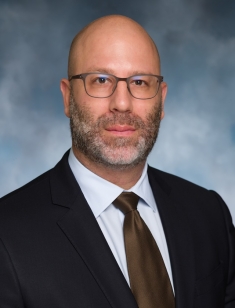
We offer a complete range of plastic and reconstructive surgery services for both adults and children. Our surgeons are nationally and internationally renowned for their surgical and research contributions to plastic surgery.
The Center is a prime component of the University Medical Group (UMG) at the Rutgers Robert Wood Johnson Medical School. All our doctors are full-time faculty members at this premier academic medical institution.
In addition to providing patient care, each surgeon is involved in clinical research as well as the teaching of all types of cosmetic and reconstructive surgery. These scholarly activities allow us to achieve our goal of providing the highest quality service by using the most advanced techniques and skills for optimal medical care.
Richard L. Agag, MD
Chief, Division of Plastic Surgery
Faculty and Staff
Division Leadership
Richard L. Agag, MD
Chief, Division of Plastic Surgery
732-235-7865
Faculty
Erin Carroll
Physician Assistant
ec511@rwjms.rutgers.edu
Carla Pardee
Physician Assistant
Jeremy C. Sinkin, BA
Assistant Professor, Reconstructive & Plastic Surgery
732-235-7865
Emily Ann Van Kouwenberg, MD
Assistant Professor
732-235-7865
Clinical Services
Accordion Content
-
The complete range of cosmetic services we perform includes facelifts, browlifts, nasal surgery, eyelid surgery, breast augmentation, chemical peel, laser surgery, dermabrasion, liposuction, body contouring, and abdominoplasty. The goal of cosmetic surgery is always to achieve the best personal appearance for you.
Everyone is a unique individual with special concerns and desires. We listen carefully to your desires and treatment is tailored to your specific needs. After a complete evaluation, your doctor thoroughly discusses the proposed treatment and answers all your questions. Our team works to educate you about what you can expect before and after the operation.
To assure your comfort and privacy, we provide all evaluations in our private office setting. Surgery can be performed confidentially at any one of several out-patient facilities depending on your wishes.
-
We provide the following cosmetic surgical procedures:
- Rhinoplasty (nasal surgery)
- Facelift (rhytidectomy)
- Eyelids (blepharoplasty)
- Neck lift (cervicoplasty)
- Skin cancers of the face (basal, squamous cell, and melanoma),
- Ear-cosmetic & reconstruction (otoplasty)
- Post-trauma reconstruction (scars and bone)
In addition to the full scope of cosmetic surgery, we perform reconstruction on all types of facial injuries, and tumors of the face, jaws, and nose. We treat fractures of facial bones, nose, and jaw from car accidents or work-related trauma. We also repair residual facial deformities due to poor healing or scars.
-
The center's surgeons can remove common skin tumors of any size or type, and provide expert plastic reconstruction, including:
- Basal cell skin cancer (most common)
- Squamous cell skin cancer (less common)
- Malignant melanoma (increasingly common)
Skin lesions that do not heal in 4 to 6 weeks are suspicious for skin cancer, especially in people with previous or recent sun exposure.
Any physician can remove skin cancer, but our expert plastic surgeons offer optimal care with the most cosmetically acceptable results. We are closely affiliated with the Cancer Institute of New Jersey in New Brunswick.
-
Whether you are looking for enlargement (augmentation mammaplasty), reduction (reduction mammaplasty), lift (mastopexy), or reconstruction after mastectomy (implant, expander, or tram), the center offers complete breast plastic surgery service for cosmetic breast contouring, such as lifting, enlargement, and correction of abnormalities.
We perform all methods of reconstruction after surgery for breast cancer, as well as breast reduction for overly large breasts. We serve as the principal plastic surgeons for the New Jersey Comprehensive Breast Care Center at the Cancer Institute of New Jersey.
-
Dr. Borah is the director of the skin laser center at Robert Wood Johnson University Hospital and has over twenty years of laser experience. Our doctors are experts in skin laser treatments of all types, including:
- Wrinkles
- Red spots (port wine stains)
- Spider veins
- Surface leg veins
- Tattoos
- Age spots
We can choose from six different types of lasers to correct cosmetic skin blemishes and wrinkles. We can also lighten or eliminate unsightly blood vessels in the skin of the face, legs, or hands using laser light.
-
The center's team treats work-related hand injuries at the time of injury and afterward, including:
- Work-related injuries (fractures, scars, tendon injuries)
- Automobile-related injuries (all types)
- Cysts or masses
- Cancers
- Dupuytren’s contracture
- Nerve injury or numbness
- Vascular abnormalities
- Degenerative joint diseases
- Carpal tunnel
- Soft tissue and bone masses
- Birth defects
- Trauma (fractures, dislocations, lacerations, etc.)
- And more
We coordinate your treatment with specialized hand and occupational therapists, rheumatologists, and primary care physicians to achieve the optimum results from surgery.
-
The surgical team offers the most advanced treatment for skin hemangiomas, tumors, and birthmarks. We work closely with pediatricians, pediatric anesthesiologists, and other professionals to provide comprehensive care for your child. While scarless surgery is not yet possible, our aim is always to correct your child's problem with the least amount of scarring.
Procedures we perform include those involving:
- Birthmarks (congenital nevi, port wine stains)
- Blood vessel tumors (hemangiomas, port wine stains)
- Cleft lip and palate
- Hand abnormalities (extra digits, fused fingers or toes)
- Ear abnormalities (prominent ear, cup ear, missing ear):
Birth defects including abnormalities of the ear, face, skull, cleft lip and palate, hand, and breast are treated from infancy through adulthood.
-
The surgeons at the center are nationally and internationally recognized experts in their fields, and we offer consultation, second (or third) opinions, reassurance, or services related to complex cases or unsatisfactory results for any problem related to cosmetic or reconstructive plastic surgery.
Our independent evaluations can help you decide on the best course of action for treating your condition. We may confirm the advantages of your present course of therapy, or offer an alternative approach. We provide this service in the strictest confidentiality.
-
The surgeons at the Center use sophisticated "tissue transplantation" to rebuild defects from trauma, tumors, or other deforming conditions. Our doctors are specially trained in the most advanced techniques in microsurgery to achieve the complex reconstructive demands required for defects of the leg, arm, and head. These include:
- Free flaps (tissue transplantation)
- Nerve repair
- Hand blood vessel repair
- Work-related finger or hand reattachment
The microsurgical team performs emergency finger, limb, scalp, and ear reattachment operations related to work injury, in addition to delayed reconstruction. We can arrange the transfer of hospitalized patients to our service from other hospitals where these sophisticated services are not available.
Division of Plastic Surgery Programs
For more information related to the Division of Plastic Surgery's clinical programs, including breast reconstruction, cleft palate-craniofacial, cosmetic surgery, hand surgery, or wound center, visit the Division's program page.
Patient Information
Accordion Content
We see patients by appointment at one of our clinical locations in the Brunswick-Princeton area. appointments can be made by calling (732) 235-7865 between the hours of 8:30 am and 5:00 pm on weekdays.
-
The surgeons at the Center operate at the premier hospitals in Central New Jersey - including: Robert Wood Johnson University Hospital, St Peter's University Hospital, and (CARES) Surgical Center in New Brunswick and The Medical Center at Princeton.
-
We are available for emergencies 24 hours a day. After hours and on weekends, our answering service will relay your message to (732) 235-7865.
In cases of emergency, please go directly to the emergency room at the nearest hospital, or to the Robert Wood Johnson University Hospital in New Brunswick.
-
The patient is always responsible for the bill. Payment for charges are due at the time of service. However, bills will be submitted to insurance for patients who are covered under Medicare, and by other insurance plans, depending on the rules for each company.
The doctors at the center are participants in most managed care insurance plans. Please let our staff know the name of your plan when making your appointment to help us prepare the proper paperwork. All cosmetic surgery patients are required to meet their financial obligations before having their surgery.
-
We aim to provide the highest quality of care for you and your family. You can help in that process by making a list of any questions that you would like discussed at the time of your visit.
If you have been referred to us by another physician, please have the referring physician's name and address available when you come for your visit. Please bring your insurance card plus a referral sheet (if your plan requires one) and any relevant test results and X-rays to expedite your consultation.
Message from the Chief
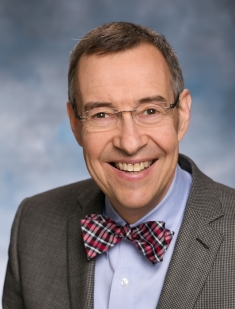
The Division of Surgical Oncology provides an integrated program for surgical cancer care and research within the Department of Surgery, School of Medicine, and the Cancer Institute of New Jersey.
The continued growth, maturation, and success of our clinical and research programs have been accompanied by the successful recruitment of talented and accomplished faculty who provide new expertise and support for these programs.
The Division strives to provide outstanding clinical care across the spectrum of surgical oncology and to conduct leading-edge research in cancer detection, treatment, and prevention.
David A. August, MD
Chief, Professor of Surgery
Faculty and Staff
David A. August, MD
Chief, Professor of Surgery
Vadim P. Koshenkov, MD
Assistant Professor
Clinical Services
- Breast preserving surgery for breast cancer
- Colorectal cancer resections including abdominoperineal resections & pelvic exenteration
- Combined resection & reconstruction techniques including immediate breast reconstruction for breast cancer
- Gastrointestinal tract malignancies
- Laparoscopic and minimally invasive cancer surgery
- Major hepatic resections
- Major pancreatic resections
- Major gastric resections
- Melanoma
- Nipple-areolar sparing mastectomy
- Retroperitoneal sarcomas
- Soft tissue sarcomas
- Sentinel node techniques in breast cancer & melanoma
- Transhiatal esophagectomy
Research
Accordion Content
-
The Division includes Principal Laboratory Investigators, whose areas of interest include: Angiogenesis control and regulation; apoptosis; cellular adhesion; cytokine expression and regulation; virally-mediated immuno-modulatory gene therapy, and and pancreatic and melanoma cancer biology.
Each investigator maintains an active research laboratory interacting with colleagues within the institution and with extramural collaborators. They have successfully competed for grant support from Federal and other granting agencies.
-
The Division works to translate basic science research directly to the care of patients. These efforts involve close collaborations between clinicians and laboratory-based researchers. Current translational projects include initiatives in breast cancer, bladder cancer, prostate cancer, melanoma, pancreas cancer, and colorectal cancer.
Clinical Trials
The Division participates in a wide variety of cooperative group clinical trials specific to particular tumor sites under the auspices of NSABP, ECOG, and other cooperative trial groups.
In addition, Division Faculty design, sponsor, and conduct investigator-initiated clinical trials examining novel screening, diagnostic, and therapeutic approaches, new surgical techniques, and treatment outcomes.
Cancer Control & Prevention
Division members are actively involved in efforts to prevent cancer development and improve diagnosis and treatment through clinical trials and population-based studies.
These initiatives include studies in colorectal, breast, and pancreas cancer prevention, and epidemiologic studies of the role of diet in cancer development, with a particular focus on ovarian and endometrial cancers.
Education
The Division faculty has a longstanding commitment to undergraduate and postgraduate education. We have been honored by consistently high evaluation ratings provided by medical students and house staff rotating on the Division’s clinical services. We provide educational experiences for 3rd-year medical students during their surgical clerkship as well as elective rotations for 3rd and 4th-year students.
In addition, pre- and post-doctoral research opportunities are available offering full-time laboratory research training to individuals who wish to gain in-depth experience in basic science and translational research.
The Division hosts rotating residents from the Obstetrics & Gynecology Residency as well as the Family Practice Residency. Since 2006, the Division has offered a formal Breast Oncology Fellowship accredited by the Society of Surgical Oncology for surgical trainees who seek additional clinical and research training after completion of their residencies.
Contact Us
For further information, please contact the Division of Surgical Oncology Administrative office at (732) 235-7701.
Message from the Chief
The Division of Surgical Sciences was established in 1997 and has grown dramatically since that time as new investigators have been recruited to the faculty and new research initiatives have been added. Our mission is to integrate basic, translational, and clinical research through academic and clinical collaborations both within and outside of RWJMS. We are also committed to the educational mission of the school by developing divisional education resources for medical students, residents, and graduate and undergraduate students.
The Division Faculty research interests are broad and include studies in embryonic development, wound healing, tissue engineering, malignant invasion, inflammation and sepsis, gut immunity, diabetes, and stem cell transplantation. Division Faculty have a long and productive publication history and have been highly successful at generating new NIH and other federal, State, and private funding for their programs.
The Division operates fully equipped basic science laboratories comprising approximately 6,000 square feet located on the 7th floor of the Clinical Academic Building in New Brunswick, NJ. The Division has various core resources, including flow cytometry, epifluorescence microscopy, and a DNA core lab which are available to investigators throughout the department. We are also close to research laboratories at the Child Health Institute of New Jersey, the Cancer Institute of New Jersey, and the Robert Wood Johnson University Hospital.
Our translational research enterprise includes both faculty-initiated as well as sponsored projects. This resource employs several support personnel with extensive experience in both small and large animal experimentation. The vivarium facility is overseen by the Operations Office of the Medical School, including full-time veterinary faculty support.
The Division of Surgical Sciences is also home to the Clinical Trials Unit which provides expertise in contract negotiation, budgeting, IRB interface, and clinical coordinator activities. In addition to pursuing federally funded investigator-initiated research, our group of experienced clinicians, scientists, and nurse coordinators have performed dozens of Phase I, II, III, and IV trials over the past several years. We invite your inquiries about this expertise through the Office of the Chairman.
Ramsey A. Foty, Ph.D.
Chief
Faculty and Staff
Ramsey A. Foty, PhD
Chief
fotyra@rwjms.rutgers.edu
Mohan R. Nair, MD
mohanrbk@rwjms.rutgers.edu
Clinical Services
For more information about our services, including our current programs, visit the Division of Surgical Science's clinical page:
Research
Accordion Content
-
The Division Faculty research interests are broad and include studies in embryonic development (Foty), wound healing (Corbett), tissue engineering (Foty), malignant invasion (Foty), inflammation and sepsis (Calvano, Corbett), gut immunity (Laouar), and renal transplantation and physiology (Laskow, Osband). Basic research methodology spans the multi-scale from molecular biology, to cell, tissue, and organismal biology as well as biomechanics.
State-of-the-art research facilities and technical expertise provide an excellent teaching environment for undergraduates, graduate students, post-docs, medical students, and residents. Division Faculty have a long and productive publication history and have been highly successful at generating new NIH and other federal, State, and private funding for their programs.
-
The Division also provides support for small and large animal research programs. This includes capabilities for the development of innovative techniques, monitoring, long-term care, and standard as well as non-traditional assays. The vivarium is staffed by technical personnel with experience in diverse surgical technologies.
The Division has established a rapid response program that promotes a seamless entry point for individuals and industry partners seeking to take advantage of these facilities. The details of this initiative are outlined below.
-
A major theme of the Division is the encouragement of patient-oriented research. Many members of the faculty avail themselves of the expertise afforded by Division faculty and staff in the pursuit of both investigator-initiated and sponsored research. Several NIH-sponsored clinical research initiatives are underway in the division (see below).
Highly experienced support staff are available to provide assistance in trial design, contracting, and protocol submission as well as comprehensive clinical trials management. Biostatistical support is also available through the Division. A rapid response clinical trials program assures effective clinical trial initiation.
Clinical Trials
Several NIH-sponsored clinical research initiatives are underway in the division (see below). Highly experienced support staff are available to provide assistance in trial design, contracting, and protocol submission as well as comprehensive clinical trials management. Biostatistical support is also available through the Division. A rapid response clinical trials program assures effective clinical trial initiation.
Translational Research
Dr. Siobhan Corbett, Susette Coyle, Beatrice Haimovich, Ph.D., Steve Calvano, Ph.D. and Marie Macor: (732) 235-8143
Clinical Trials
Dr. Siobhan Corbett, Dr. Alan Spotnitz, Susette Coyle and Marie Macor: (732) 235-8143
Overview
The Thoracic Surgery Division at Robert Wood Johnson Medical School is based on innovation, quality, and volume.
We offer the full complement of sophisticated thoracic surgery including; VATs and robotic procedures, as well as, all aspects of minimally invasive thoracic surgery- lobectomy, pneumonectomy, and esophagectomy, in addition to procedures for benign thoracic pathology (myotomy for achalasia, anti-reflux procedures, etc.).
We are dedicated to the most advanced, innovative techniques and devices to aid in the optimal care of our patients. The keen collaborative spirit between our surgeons and the referring physician community ensures the best outcome for our patients. Being an academic medical center, we utilize and employ evidence-based medicine to guide all standards of care within our specialty while continuing to be leaders at the forefront of academic medicine.
Faculty
Ioannis Kontopidis, MD
ik290@rwjms.rutgers.edu
John E. Langenfeld
langenje@rwjms.rutgers.edu
Anthony Lemaire
Anthony.Lemaire@rwjms.rutgers.edu
Hirohisa Ikegami
Manabu Takebe, MD
Clinical Services and Trials
Division of Cardiothoracic Surgery
For individuals in need of a transcatheter aortic valve replacement, membership into the advanced heart failure and transplant cardiology program, information on trials, or more details, please visit the Division of Thoracic Surgery's provider page.
Make an Appointment
All general thoracic patients should be referred by either a pulmonologist, internist, or primary care physician. Specific referral requirements are dependent upon a patient's insurance carrier.
Appointment Phone
(732) 235-7802 - General Thoracic
Office Hours
8:00 a.m. - 4:00 p.m.
Office Locations
General Thoracic
CINJ New Brunswick
195 Little Albany St.
New Brunswick, NJ 08901
RWJ Somerset
30 Rehill Ave, Ste 2400
Somerset, NJ 08876
Message from the Chief
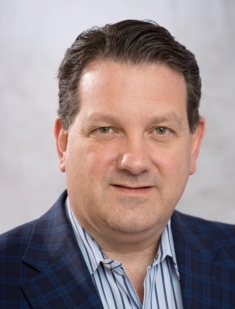
Thank you for your interest in the Robert Wood Johnson Medical School Division of Urology. Established in 1987, the Division of Urology has experienced significant growth and expansion. Our Division spans both the Robert Wood Johnson Medical School and the Rutgers Cancer Institute of New Jersey (CINJ) with nearly every subspecialty within urology covered by fellowship-trained attendings. Specialized care is offered in urologic oncology, andrology, endourology/stone disease, voiding dysfunction/pelvic floor medicine and surgery, pediatric urology, and general urology.
Our dedication to residency training and education is reflected by our 100% American Board of Urology pass rate. Our residents have access to multiple robotic systems across all of the training sites, a teaching console, a single port robotic system, and two robotic simulators. All residents benefit from a core training program centered at RWJMS, CINJ, and the Bristol-Myers Squibb Children's Hospital.
Our Division offers the latest in robotic, laparoscopic, and endoscopic surgery while still providing outstanding training in open surgery.
- Our CINJ faculty perform all major oncologic surgeries via open and robotic approaches including radical cystectomy, radical/partial nephrectomy (including cytoreduction/metastasectomy), nephroueterectomy, radical prostatectomy (including cytoreduction), post-chemotherapy retroperitoneal lymph node dissection, and inguinal lymphadenectomy for penile cancer.
- Our pediatric urologists also perform minimally invasive surgery as well as complex reconstruction.
- The Andrology service offers a full range of services to men with infertility and erectile dysfunction.
- Our Stone Center performs complex percutaneous and endoscopic stone surgery in addition to comprehensive metabolic evaluations.
- The Voiding Dysfunction/Pelvic Floor service treats men and women with urinary tract issues in a holistic and collaborative approach.
- Our General Urology providers are excellent mentors for our residents and staff at the Robert Wood Johnson University Hospital clinic
The Division’s research enterprise is robust with all faculty contributing. Our research portfolio covers basic/translational science, clinical trials, and health services/outcomes research. Extramural grants, institutional funds, industry, and philanthropy support this research. Residents have the opportunity to be involved in the research process from conceptualizing a hypothesis, study design, scientific review board/institutional review board approval, implementation, analysis, and reporting of the findings. These experiences will serve our trainees well regardless of one’s future career path.
Residents regularly submit abstracts under faculty guidance and make presentations at national meetings such as the American College of Surgeons Clinical Congress, American Urological Association Annual Meeting, Society of Urologic Oncology Annual Meeting, Genitourinary Cancers Symposium (GU ASCO), World Congress of Endourology, and the Society of Laparoendoscopic Surgeons Annual Meeting.
Our children's hospital also recently opened the Center for Advanced Pediatric Surgery, a 17,000-square-foot facility dedicated to pediatric surgical care. When not based at our home campus, our residents rotate at Princeton University Medical Center and Robert Wood Johnson University Hospital-Somerset. Both of these teaching hospitals are under the directorships of dedicated clinical faculty with expertise in general, robotic, and female urology.
Trainees participate in weekly Grand Round presentations/discussions, monthly Journal Clubs, and fall/spring Visiting Professors. Urology residents have a dedicated 6-month research rotation, which is uncommon in a 5-year training program. The research rotation involves and involves close mentoring from faculty members. Residents present their research to our Visiting Professors and also at a meeting of the New York Section of the AUA on an annual basis.
Urology residents (PGY-2) attend the American Urological Association’s “Fundamentals in Urology” course each year. This is a 3-day intensive course taught by expert faculty from around the country. Urology residents are also encouraged to participate in the NIH’s Introduction to the Principles and Practice of Clinical Research course with additional mentoring provided by Division faculty.
For general information about the Division please call 732-235-7775.
Joseph Barone, MD, MBA, FAAP
Division Chief
Professor
Section Chief, Pediatric Urology
Surgeon-In-Chief, Bristol-Myers Squibb Children's Hospital, RWJUH
Faculty and Staff
Accordion Content
-
Division Leadership
Joseph Barone, MD, MBA, FAAP
Division Chief
Professor
Section Chief, Pediatric Urology
Surgeon-In-Chief, Bristol-Myers Squibb Children's Hospital, RWJUH
Phone: 732-235-7960
Fax: 732-235-6042Sammy E. Elsamra, MD, FACS
Director of Robotic Surgical Services, Robert Wood Johnson Barnabas Hospital, New Brunswick
Associate Professor
Section Chief, General Urology
Phone: 732-235-7775
Fax: 7 32-235-8018
elsamrsa@rwjms.rutgers.eduThomas L. Jang, MD, MPH, FACS
Chief of Urologic Oncology
Professor, Department of Surgery
Director, Program in Testicular Cancer & Retroperitoneal Surgery
Program Director, Urology Residency Program
Phone: 732-235-8515
Fax: 732-235-3299
jangtl@cinj.rutgers.eduAcademic Faculty
Haris Ahmed, MD
Assistant Professor
Section of Pediatric Urology
Phone: 732-235-7960
Fax: 732-235-6042
ahmedhs@rwjms.rutgers.eduSaum Ghodoussipour, MD
Assistant Professor
Section of Urologic Oncology
Phone: 732-235-8515
Fax: 732-235-3299
sg1621@cinj.rutgers.eduDavid Golombos, MD
Associate Professor
Section of Urologic Oncology
Phone: 732-235-8515
Fax: 732-235-3299
golombdm@cinj.rutgers.eduJi Hae Park, MD
Assistant Professor
Director, Endocrinology and Stone Disease
BP Surgical Simulation/Surgical Skills Training
Phone: 732-235-7775
Fax: 732-235-8018
park10@rwjms.rutgers.eduAlexandra Tabakin, MD
Assistant Professor
Urogynecology and Reconstructive Pelvic Surgery
Phone: 732-235-7775
Fax: 732-235-8018
atabakin@rwjms.rutgers.eduDanielle Velez Leitner, MD
Assistant Professor
Director, Men's Health
Phone: 732-235-7775
Fax: 732-235-8018
velezd1@rwjms.rutgers.eduCharles Concodora, MD
Assistant Professor
Section of Pediatric Urology
200 Wyckoff Road, Eatontown
Phone: 723-235-7960
Fax: 732-235-6042
concodcw@rwjms.rutgers.eduChrystal Chang, MD
Assistant Professor
Genitourinary Reconstructive Surgery
Phone: 732-235-7775
Fax: 732-235-8018
chrystal.chang@rwjms.rutgers.eduVignesh Packiam, MD
Assistant Professor
Section of Urologic Oncology
Phone: 732-235-8515
Fax: 732-235-3299
Vignesh.Packiam@cinj.rutgers.eduKara McAbee, MD
Assistant Professor
Section of Pediatric Urology
Phone: 732-235-7960
Fax: 732-235-6042
km1975@rwjms.rutgers.eduWayland Wu, MD
Assistant Professor
Section of Pediatric Urology
Phone: 732-235-7960
Fax: 732-235-6042
ww463@rwjms.rutgers.eduAPNS
Andrea Hart, NP-C
Adult UrologyJoanna Gurdak, APN-BC
Adult UrologyJasper Pechera, MSN, FNP-C
Pediatric Urology -
Robert Wood Johnson Medical School/Cancer Institute of NJ
- Joseph Barone, M.D., M.B.A., F.A.C.S., F.A.A.P.
- Haris Ahmed, M.D.
- Chrystal Chang, M.D.
- Charles Concodora, M.D.
- Sammy Elsamra, M.D., F.A.C.S.
- Saum Ghodoussipour, M.D.
- David Golombos, M.D.
- Thomas Jang, M.D., M.P.H., F.A.C.S.
- Kara McAbee, M.D.
- Alexandra Tabakin, M.D.
- Ji Hae Park, M.D.
- Danielle Velez, M.D.
- Vignesh Packiam, M.D.
- Wayland Wu, M.D.
- Joanna Gurdak, APN-BC
- Andrea Hart,MSN, APRN, FNP-C
- Jasper Pechera, MSN-FNP-C
Robert Wood Johnson University Hospital
- Edward White, M.D.
Robert Wood Johnson Somerset
- Neel Shah, M.D.
- Nitin Patel, M.D.
- Dhiren Dave, M.D.
- Keith Harmon, M.D.
- Mary McHugh, D.O.
- John Sheng, M.D.
- Katherine Shapiro, MD
Princeton University Medical Center
- Karen Latzko, M.D.
- Barry Rossman, M.D.
- Alexi Wedmid, M.D.
- Heather Van Raalte, M.D.
- Alexander Vukasin, M.D.
Monmouth Medical Center
- Charles Concodora, M.D. (Pediatric Urology)
Multidisciplinary CINJ Team Members
- Mark Bramwit, M.D. (GU Radiology)
- Ronald Ennis, M.D. (Rad Onc)
- Lara Hathout, M.D. (Rad Onc)
- Sinae Kim, PhD (Biostats)
- Tina Mayer, M.D. (Med Onc)
- John Nosher, M.D. (Interventional Radiology)
- Rahul Parikh, M.D. (Rad Onc)
- Biren Saraiya, M.D. (Med Onc)
- Ryan Stephenson, M.D. (Med Onc)
Clinical Services
Accordion Content
-
Patients having problems with erectile dysfunction, ejaculatory and orgasmic disorders, male factor infertility, and other issues affecting men's health will benefit from our Andrology Program.
Our program presents the patient with a variety of treatment options to improve relationships, build families, and improve quality of life.
For locations and appointments, please call:
Danielle Velez, MD
732-235-7775Locations:
-
The broad goals of the section of Urologic Oncology are to cure patients with genitourinary malignancies, conduct high-quality clinical research that leads to better outcomes for patients with genitourinary malignancies, and collaborate with investigators at The Cancer Institute of New Jersey (CINJ) conducting basic research on genitourinary malignancies in order to develop novel diagnostic and therapeutic tools. Four faculty members focus on treatment of Adult Urologic Malignancies:
Urologic Oncologists:
- Thomas Jang, M.D., M.P.H., F.A.C.S, Associate Professor
- Saum Ghodoussipour, MD, Assistant Professor
- David Golombos, MD, Assistant Professor
All faculty members who treat urologic malignancies are members of The Cancer Institute of New Jersey, the only National Cancer Institute-designated comprehensive cancer center in New Jersey. Our CINJ clinics are based on a multidisciplinary team approach including:
Medical Oncologists:
- Robert DiPaola, M.D.
- Marc Stein, M.D.
- Tina Mayer, M.D.
Oncology Specialty Nursing:
- Kathy Morris R.N., B.S.N., O.C.N.
- Stephanie Matlin, R.N. B.S.N.
- Ashwini Rao, R.N., B.S.N.
Radiation Oncologists:
- Sung Kim, M.D.
- Sabin Motwani, M.D.
- Atif Khan, M.D.
-
Pediatric Urology involves diagnosing and treating urologic problems in children from birth to early adulthood. Some conditions, such as fluid-filled enlargement of the kidneys, are even evaluated antenatally (before birth).
The pediatric urology program at Robert Wood Johnson Medical School is under the direction of Dr. Joseph G. Barone. It is a world-class program, offering treatment of hernia and hydrocele, vesicoureteral reflux, ureteropelvic junction obstruction, hypospadias, voiding dysfunction, and infection. For children who wet the bed, the pediatric urology program offers a comprehensive diagnostic and treatment program, one of a few such programs in the country.
Though day procedures may be performed at one of several surgicenters, the Pediatric Urology Program is based at The Children's Hospital at Robert Wood Johnson University Hospital. The Children's Hospital at Robert Wood Johnson University Hospital features a variety of pediatric subspecialists for situations that require a multidisciplinary approach, including pediatric radiology and pediatric anesthesia.
Pediatric child life nurses provide an excellent teaching program for children who require surgery. At the Children's Hospital, you are encouraged to accompany your child into the operating room, comfort your child in the postoperative recovery room, and sleep in your child's room should an overnight stay be necessary. Dr. Barone also provides a second opinion program for consultation before your child has surgery.
Office Location and Appointments
- Joseph Barone, MD, MBA
- Harris Ahmed, MD
- Charles Concodora, MD
- Kara McAbee, MD
- Wayland Wu, MD
Locations
- 1 World's Fair Drive, Somerset
- 125 Paterson Street, Suite 3300, New Brunswick
- 200 Wyckoff Road, Eatontown
- 201 Lyons Avenue, Newark
Appointments
Please call: (732) 235-7960
-
Endourology is the use of a small telescope to gain access to the urinary system. This minimally invasive technique allows our Doctors to visualize the inside of the bladder, ureter, and kidney, without making a surgical incision. In this manner, the presence of a stone, polyp, or tumor not otherwise seen in the urinary tract can be determined.
We have found that in many patients, treatment should be performed endoscopically. This can be accomplished at our center through the use of specially adapted lithotriptor and laser probes. We currently have an active program for the evaluation and treatment of upper urinary tract stones and tumors, which many patients have found helpful.
Laparoscopy is performed by passing a telescope through the abdominal wall, usually at the umbilicus, to visualize the inside of the abdomen and pelvis directly. Though primarily diagnostic in adults and children, interventional laparoscopy is evolving.
For example, lymphadenectomy (removal of lymph nodes) for the staging of urologic malignancy may be performed through this technique, avoiding an incision and prolonged hospitalization. Laparoscopy is also helpful in the diagnosis and treatment of some children with undescended testicle(s). Our approach to additional laparoscopic techniques is in evolution and we would be happy to talk with you regarding this.
Office Locations and Appointments
Clinical Academic Building
Room 4100
125 Patterson Street
New Brunswick, NJ 089011 Worlds Fair Drive
1st-floor Surgery Suite
Somerset, NJ 08873For Appointments: (732) 235-7775
-
Over 50% of women suffer from urogynecologic issues and pelvic floor disorders during their lifetime. Although these issues are generally not life threatening, they can be bothersome and significantly impact quality of life. Our urogynecologist Dr. Alexandra Tabakin is fellowship-trained in Urogynecology and Reconstructive Pelvic Surgery. She offers comprehensive care for all pelvic floor disorders, including non-surgical and surgical treatments. Dr. Tabakin is highly experienced in robotic and vaginal surgery and has expertise in the following:
-
Pelvic organ prolapse: dropped bladder, uterus, rectum
-
Stress urinary incontinence: leakage of urine with coughing, sneezing, laughing, etc.
-
Urinary urgency and frequency
-
Loss of urine control
-
Overactive bladder
-
Urethral diverticulum
-
Vaginal cysts
-
Vaginal masses
-
Vaginal fistula
-
Vaginal mesh complications
-
Sacral neuromodulation
-
Bladder sling
-
Robotic surgery
-
Vaginal surgery
Office Locations and Appointments
Clinical Academic Building
Room 4100
125 Patterson Street
New Brunswick, NJ 08901For Appointments with Alexandra Tabakin, MD please call: (732) 235-7775
-
Research
Our Urologic Oncology Program offers a wide breadth of clinical trials for patients with tumors of the genitourinary tract. Our faculty are leaders in basic science & translational science, clinical trials, and health services research.
Gifts & Support
Your support for our division allows us to continue our mission and expand our educational goals for our faculty and residents.
Contact Us
Phone: 732-235-7775
For Appointments: Use Option 1
To Speak With a Nurse: Use Option 4
Message from the Chief
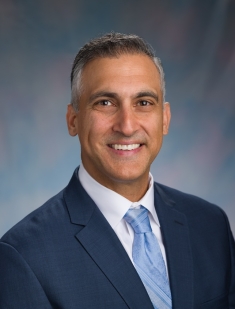
I am honored and proud to lead this Division of Vascular Surgery and Endovascular Therapy into the future. Our team is comprised of outstanding clinical faculty, staff, and research assistants. Norman Rosenberg, MD, one of the pioneers in Vascular Surgery started this Division and we have evolved into one of the leading vascular centers in the country.
Our mission, shared with the entirety of the Robert Wood Johnson Medical School, is to provide excellence in clinical care first and foremost. Our patient-centered approach is our core value and what builds from that is our ability to provide outstanding education, research, and community service.
Our center of excellence offers comprehensive, state-of-the-art services for treating all vascular disease processes. Our large clinical volume has allowed us to expand our knowledge and expertise, streamline medical and surgical care, and provide our community with the best patient experience possible. We aim to provide personalized, efficient, quality medical and surgical care in an academic setting.
As an academic center, we are constantly reviewing our results, researching and developing new methods of treatment, participating in clinical trials for new medical devices, and advancing our approach to patient care as technology improves. We appreciate and look forward to evaluating and treating our patients. It is truly a privilege for us to be able to care for your family and loved ones.
Saum Rahimi, M.D., F.A.C.S.
Chief, Division of Vascular Surgery
Faculty
Division Leadership
Saum A. Rahimi, MD, FACS
Professor of Surgery
Norman and Ruth H. Rosenberg Chair in Vascular Surgery
Chief, Division of Vascular Surgery and Endovascular Therapy
732-235-7816
saum.rahimi@rwjms.rutgers.edu
Faculty
Justin W. Ady, MD, RPVI
Assistant Professor of Surgery
William E. Beckerman, MD, FSVS, FACS, RPVI
Associate Professor of Surgery
Program Director, Vascular Surgery Integrated Residency Program
Medical Co-Director, RWJUH Center for Wound Healing
beckerwe@rwjms.rutgers.edu
Steven Curtiss, MD
Assistant Professor of Surgery
Huong Truong, MD, RPVI
Assistant Professor of Surgery
Jennifer Ran Li, MD
Assistant Professor of Surgery
Clinical Services
Click Here to View our Clinical Programs
Robert Wood Johnson has a long and illustrious history as a leader in the field of vascular surgery. Now, as the Division of Vascular Surgery and Endovascular Therapy, we marry academic excellence with cutting-edge clinical treatment in our efforts to care for people suffering from vascular disease while always placing the patient first.
We treat the full spectrum of vascular disease, including but not limited to, thoracic and abdominal aortic aneurysms and dissections, carotid disease, peripheral arterial (lower extremity) disease, renal and visceral arterial disease, thoracic outlet syndrome, venous insufficiency including varicose veins, DVT and venous obstruction, May-Thurner syndrome, hemodialysis access and maintenance, and arteriovenous malformations.
The Society for Vascular Surgery is the foremost international medical society composed primarily of vascular surgeons that seeks to advance excellence and innovation in vascular health through education, advocacy, research, and public awareness. Their website has a bevy of unbiased information on numerous vascular conditions, tests, and treatments: https://vascular.org/patient-resources
We know that no two people are alike, and we are happy to discuss any patient-specific questions you may have regarding vascular disease or its treatment with you in person. Feel free to contact us at the phone number below to make an appointment with one of our physicians.
Our physicians are not just excellent surgeons, but also educators, leaders, and most of all humanitarians. We specialize in the surgical and minimally invasive endovascular treatment of vascular disease, as well as the medical management of all vascular conditions.
Vascular Laboratory
Accordion Content
-
The Vascular Laboratory at Robert Wood Johnson University Hospital is one of the premier facilities in New Jersey. Accredited by the Intersocietal Accreditation Commission (IAC), we perform over 12,000 non-invasive vascular laboratory studies annually. Certified technologists employing state-of-the-art technology perform a broad array of studies under the supervision of the Faculty of the Division of Vascular Surgery at Robert Wood Johnson Medical School.
Justin W. Ady, MD, RPVI is the medical director of the non-invasive vascular laboratory and is a full-time faculty member of the Division of Vascular Surgery at Rutgers Robert Wood Johnson Medical School. All our physicians interpreting studies in the vascular lab are RPVI-certified, and all vascular technologists in the lab are RVT- or RVS-certified.
Vascular residents and fellows in the Division of Vascular Surgery and Endovascular Therapy are trained in the performance and interpretation of all vascular lab studies under the supervision of the Faculty.
The laboratory provides testing for all areas of arterial disease, carotid disease, intracranial disease, and venous disease. It is open seven days a week for both outpatient and inpatient studies. Emergency studies may be performed at the bedside of critically ill patients or those who cannot travel to the laboratory.
You can reach the Inpatient Vascular Laboratory at Robert Wood Johnson University Hospital at (732) 937-8635.
-
Outpatients can have their non-invasive vascular testing performed at either our inpatient vascular lab or more conveniently, our outpatient vascular laboratories located in Monroe Township. We provide convenient comprehensive testing services in a pleasant environment at this off-campus location. All testing is performed in conjunction with On-Site Cardiovascular Imaging (OCVI) and is interpreted by our faculty.
You can reach the Outpatient Vascular Laboratory at OCVI Imaging in Monroe Township at (609) 409-8300
Research
Accordion Content
-
The Division of Vascular Surgery has active research programs in both clinical and basic science. We have developed a clinical focus on surgical outcomes and the functional health of patients with vascular disease. The central objective of the basic science program is to provide an improved understanding of the important cell-cell and cell-biomaterial interactions within the vasculature.
-
Dr. Shaohua Li leads the basic science effort for the Division. We are interested in understanding the mechanisms that control the formation of organized tissue structures from embryonic stem (ES) cells and induced pluripotent stem (iPS) cells.
We are particularly interested in the extracellular cues, their cell surface receptors, and downstream signaling pathways in epithelial morphogenesis, vasculogenesis, and cardiogenesis. We use a combination of genetic, biochemical, and molecular cell biology approaches to dissect the complex interactions between these molecules in the model system of ES/iPS-derived embryoid bodies.
Epithelial morphogenesis. The formation of polarized epithelium is fundamental to embryonic development. During the peri-implantation stage, the undifferentiated inner cell mass of the blastocyst is converted from a non-polar cell aggregate to a highly organized epithelial cyst. This morphogenetic transformation involves the polarization and basement membrane-dependent survival of the epiblast epithelium.
Despite the fundamental importance of these processes, both to development and to epithelial biology, there is limited understanding of the molecular mechanisms underlying these events. Thus, the goal of this project is to identify the extracellular cues and transmembrane cascades that regulate epiblast polarization and survival.
Using the embryoid body model system, we show that basement membrane formation directs the assembly of an adhesion complex, which serves as a signaling platform to regulate epiblast polarization and survival. We are currently analyzing the functions of the Rho family of small GTPases in epithelial morphogenesis.
Vasculogenesis. Vascular morphogenesis takes place via one of two processes: vasculogenesis, in which progenitor cells differentiate into endothelial cells that construct a nascent vascular network; and angiogenesis, the formation of new blood vessels from existing vessels via sprouting and remodeling. Vasculogenesis mainly occurs during embryonic development but also in response to ischemic insults in adults.
ES cell differentiation has been used as a model to investigate the mechanisms of vasculogenesis and as a source of endothelial precursors for potential therapeutic vasculogenesis. A large body of evidence exists that demonstrates a role for growth factors and their receptors in endothelial cell specification, proliferation, and migration during vascular morphogenesis.
However, relatively little is known about the extracellular matrix associated with early endothelial precursors, and the receptors and intracellular signaling pathways that coordinate with growth factor-mediated signaling to control the vasculogenic process. The goal of this project is to elucidate the extracellular matrix-mediated signaling events that regulate the vasculogenic process during ES cell differentiation. Recently, we have found that cohesive cell aggregates expressing endothelial lineage markers can arise in differentiated embryoid bodies that form yolk sac-like structures.
These endothelial precursors are associated with a nascent basement membrane, which coordinates with vascular endothelial growth factor to activate Rho GTPases. Genetic analysis reveals Rho GTPases are required for vascular network assembly. Currently, we are investigating the upstream activators and downstream effectors of the small GTPases during vasculogenesis.
Cardiogenesis. Heart failure due to myocardial infarction is the leading cause of mortality in developed nations. Given that adult cardiomyocytes have very limited ability to regenerate, the use of ES/iPS cell-derived cardiomyocytes to repair damaged hearts becomes a new therapeutic paradigm.
To generate a large number of cardiomyocytes at their appropriate differentiation stage for transplantation and to ensure their integration and maturation in the diseased heart, it is necessary to understand the mechanisms of cardiogenesis during embryonic development and ES/iPS cell differentiation. We have developed a model system in which ES cells are first differentiated into cystic embryoid bodies that contain both visceral and parietal endoderm as well as epiblast.
The inhibitory parietal endoderm is selectively removed and the remaining EBs are allowed to attach to a fibronectin substrate for further differentiation. We found that the formation of visceral endoderm significantly enhances cardiac differentiation. This effect is mediated by soluble factors secreted by visceral endoderm. We are currently examining the visceral endoderm-derived factor capable of promoting cardiogenesis from ES/iPS cells.
-
Our efforts have focused on two areas of vascular surgery which the Division has extensive expertise: aortic aneurysmal disease and carotid disease. Our vast experience in treating aneurysmal disease allows us to collect large volumes of data and compare our results with national trends. Over the past several years we have participated in several industry-sponsored clinical trials evaluating new endovascular devices for treatment of aneurysms.
Our Division's ability to compare our large series with state and national databases will further assist in developing a greater understanding of the importance of aneurysmal disease, as well as potentially influencing health care policies.
Our research interests also include Health Services Research and Outcomes Research in all areas of vascular surgery. We have performed Outcomes Analysis on a variety of research studies:
- population-based studies of disease incidence and mortality
- patient-oriented research, such as quality-of-life studies
- evaluation of the quality of healthcare, including use (overuse and underuse) of various services, the impact of hospital/surgeon volume and regionalization of the more complex surgical procedures on results of surgical care, patient safety, and medical errors reduction
- small-area variations and trend-analysis in the use of surgical procedures
- evaluation of access to healthcare and estimation of its cost
Currently, we conduct research projects in some of the above areas with large cohorts of patients using data from large computerized administrative databases. These retrospective databases provide a large population-based sample of all surgical procedures and information on patient diagnoses and comorbidities, medical care received during admission, resource utilization (length of stay, total and detailed charges/cost), medical facility characteristics (location, ownership, teaching status), payers, etc.
Nationwide Inpatient Sample (NIS) is the largest all-payer inpatient database in the US containing information on approximately 8 million hospital admissions each year at 1000 hospitals that is a 20% national sample. The State Inpatient Database (SID) and State Ambulatory Surgery Database (SASD) are the whole datasets that allow the analysis and comparison of surgical practices and outcomes in inpatient and outpatient settings in the state.
We are currently working on the design of projects based on the analysis of the Medicare data. These national data contain information about health services for the population aged 65 years and above, which is an important segment of the surgical population. The results of our analytical studies using administrative databases are valuable for hypothesis-generating information for evaluating surgical performance and improving surgical quality.
-
- National Institutes of Health 1R21CA201715-01: Regulation of epithelial-mesenchymal transition and stem cell activity by PTEN in breast cancer (PI: Shaohua Li, M.D.)
- American Heart Association Grant: CREG1 regulation of adherens junction assembly during cardiomyocyte differentiation of embryonic stem cells. (PI: Shaohua Li, M.D.)
- Funding Agency: Agency for Healthcare Research and Quality (R24) Evaluating Vascular Interventions: Comparative Effectiveness and Readmission Consultant: (PI: Viktor Dombrovskiy, MD, PhD)
- National Natural Science Foundation of China Key Program grant: 81130072/H0203 CREG modulation of cardiogenesis from iPS cells and iCM reprogramming (Co-PI, PI: Y. Han)
- National Institutes of Health: R01GM081674 Regulation of embryonic epithelial morphogenesis (PI: Shaohua Li, M.D.)
- American Heart Association Grant-in-aid: 0755935T Role of CREG in vascular smooth muscle cell phenotype modulation (PI: Shaohua Li, M.D.)
- New Jersey Stem Cell Research Grant: 07-2042-014-84 Regulation of vasculogenesis from embryonic stem cells (PI: Shaohua Li, M.D.)
- National Institutes of Health: R01GM081674-02S1 (special supplement to iPS cell research) Using induced pluripotent stem cells to study embryonic development (PI: Shaohua Li, M.D.)
- National Institutes of Health: R01NS038469 Laminin-induced membrane complexes in muscle and nerve. (Co-investigator: Shaohua Li, M.D.)
- National Institutes of Health: R37DK036425 (MERIT award) Basement membrane self-assembly and structure. (Co-investigator: Shaohua Li, M.D.)
- American Heart Association Lower Extremity Angioplasty: Impact of Obesity, Gender, and Ethnicity on Utilization and Outcomes NCRP Clinical Research Program
-
- Comparison of EVAR and ESAR for Infrarenal Aortic Aneurysms With a Wide Proximal Neck (HERCULES)
- ClinicalTrials.gov Identifier: NCT03090230
- Post-Approval Study of the TREO Abdominal Stent-Graft System (TREO PAS)
- ClinicalTrials.gov Identifier: NCT04697784
- Study of the Relay Pro® Thoracic Stent-Graft in Subjects With Traumatic Injury of the Descending Thoracic Aorta
- ClinicalTrials.gov Identifier: NCT03090230
- Study of the RelayPro Thoracic Stent-Graft in Subjects With an Acute, Complicated Type B Aortic Dissection
- ClinicalTrials.gov Identifier: NCT03033043
- Comparison of EVAR and ESAR for Infrarenal Aortic Aneurysms With a Wide Proximal Neck (HERCULES)
-
- Gore IBE 12-04: Evaluation of the GORE EXCLUDER Iliac Branch Endoprosthesis for the Treatment of Common Iliac Artery Aneurysms or Aorto-Iliac Aneurysms
- Zenith® Spiral-Z™ AAA Iliac Leg Graft study/registry (11-015-01) – Cook Medical
- CANOPY: Carotid Artery Stenting Outcomes in the Standard Risk Population for Carotid Endarterectomy (Abbott Vascular)
- Description: The purpose of the study is to assess the performance outcome (death and stroke rate) of the RX Acculink Carotid Stent System under commercial use by collecting long-term post-approval data in patients at standard risk for adverse events from carotid endarterectomy enrolled by a broad group of physicians.
- CHOICE: Carotid Stenting for High Surgical Risk Patients (Abbott Vascular)
- Description: The purpose of this study is to provide additional information that that the commercially available Abbott Vascular Carotid Stent Systems can be used successfully by a wide range of physicians under commercial use conditions.
- Vascutek Anaconda Stent Graft System Phase II IDE Study (Vascutek)
- Description: The purpose of this study is to test the safety and effectiveness of the ANACONDA Stent Graft System for infrarenal abdominal aortic aneurysms. The system is an investigational device that is being studied for its potential to repair aneurysms located in the abdominal aorta.
- Trivascular Ovation Study [Trivascular (now Endologix)]
- Description: The purpose of this study is to test the safety and efficacy of a new low-profile endovascular aortic aneurysm repair stent graft.
- Medtronic Valiant Thoracic Stent Graft with the Captiva Delivery System (Medtronic)
- Description: The purpose of this study is to test the safety and efficacy of a new thoracic endovascular stent graft for thoracic aneurysms.
- INNOVATION Trial (Cordis)
- Description: A multicenter, prospective, non-randomized study of the CordisINCRAFT™ AAA stent graft system in subjects with abdominal aortic aneurysm, to assess the safety of a new stent graft system.
Publications and Presentations
Accordion Content
-
- Risk Factors for Surgical Site Infections After Lower Extremity Open Revascularization.
- Na S, Mazzaferro N, Xia W, Greenberg P, Beckerman W.Ann Vasc Surg. 2022 Oct 29:S0890-5096(22)00627-6. doi: 10.1016/j.avsg.2022.09.052. Online ahead of print.PMID: 36404450
- Intraoperative Vascular Assistance: Essential to an Institution's Ability to Provide Surgical Care.
- Soto C, Tarabey S, Hamilton C, Ciaramella MA, Malanowski A, Rahimi SA, Beckerman WE.Ann Vasc Surg. 2022 May;82:112-119. doi: 10.1016/j.avsg.2021.11.006. Epub 2021 Dec 10.PMID: 34896551
- Late Open Repair of a Massive Common Iliac Artery Aneurysm after Endovascular Failure.
- Vialonga M, Grieff AN, Beckerman WE.Ann Vasc Surg. 2022 Feb;79:443.e1-443.e4. doi: 10.1016/j.avsg.2021.08.021. Epub 2021 Oct 15.PMID: 34656712
- The Role of Physician-Directed Duplex after Brachial Plexus Block in Arteriovenous Fistula Creation.
- Grieff AN, Lee K, Beckerman M, Akinsanya J, Rosen SF, Curtiss SI, Rahimi SA, Beckerman WE.Ann Vasc Surg. 2022 Sep 26:S0890-5096(22)00528-3. doi: 10.1016/j.avsg.2022.09.032. Online ahead of print.PMID: 36174916
- Initial Post-Operative Visit Absenteeism is Associated With Worse Amputation-Free Survival after Tibial Angioplasty.
- Grieff AN, Syal S, Beckerman WE, Huang S.Ann Vasc Surg. 2022 Jul;83:284-289. doi: 10.1016/j.avsg.2021.11.025. Epub 2021 Dec 22.PMID: 34954033
- Concomitant Aorto-Caval Reconstruction for Inferior Vena Cava Leiomyosarcoma.
- Grieff AN, Hamilton C, Ady J, Beckerman WE, Shafritz R, Koshenkov V, Rahimi S.Ann Vasc Surg. 2021 Jan;70:567.e13-567.e17. doi: 10.1016/j.avsg.2020.08.011. Epub 2020 Aug 12.PMID: 32795651
- Prolonged recovery of acute kidney injury following AngioJet rheolytic thrombectomy.
- Kennedy RE, Corsi T, Ventarola DJ, Rahimi SA, Beckerman WE.J Vasc Surg Cases Innov Tech. 2021 Feb 9;7(2):226-229. doi: 10.1016/j.jvscit.2021.01.002. eCollection 2021 Jun.PMID: 33997559
- Anesthesia Type is Associated with Decreased Cranial Nerve Injury in Carotid Endarterectomy.
- Grieff AN, Dombrovskiy V, Beckerman W, Ventarola D, Truong H, Huntress L, Rahimi S.Ann Vasc Surg. 2021 Jan;70:318-325. doi: 10.1016/j.avsg.2019.12.033. Epub 2020 Jan 7.PMID: 31917229
- Giant visceral artery pseudoaneurysm treated with endovascular transradial coil embolization.
- Shan DK, Truong H, Tarabey S, Hamilton C, Rahimi SA, Beckerman WE.J Vasc Surg Cases Innov Tech. 2020 Sep 12;6(4):618-621. doi: 10.1016/j.jvscit.2020.09.003. eCollection 2020 Dec.PMID: 33163745
- Frailty is a Poor Predictor of Postoperative Morbidity and Mortality After Ruptured Abdominal Aortic Aneurysm.
- Ciaramella M, Kravchenko T, Grieff A, Huang S, Rahimi S, Beckerman W.Ann Vasc Surg. 2021 Jul;74:122-130. doi: 10.1016/j.avsg.2020.12.042. Epub 2021 Feb 5.PMID: 33549774
- PTEN suppresses epithelial-mesenchymal transition and cancer stem cell activity by downregulating Abi1.
- Qi Y, Liu J, Chao J, Scheuerman MP, Rahimi SA, Lee LY, Li S.Sci Rep. 2020 Jul 29;10(1):12685. doi: 10.1038/s41598-020-69698-1.PMID: 32728066
- Blunt Abdominal Aortic Dissection Treated by Endovascular Stent Placement.
- NeMoyer R, Butts C, Beckerman W, To J.Am Surg. 2021 Jan;87(1):125-127. doi: 10.1177/0003134820943543. Epub 2020 Aug 26.PMID: 32845707 No abstract available.
- Extravascular reconstruction of a congenitally absent inferior vena cava.
- Grieff AN, Shafritz R, Beckerman WE.J Vasc Surg Cases Innov Tech. 2020 Oct 19;6(4):681-685. doi: 10.1016/j.jvscit.2020.10.001. eCollection 2020 Dec.PMID: 33294753 Free PMC article.
- Parr M, Dombrovskiy VY, Nagarsheth KH, Shafritz R, Rahimi SA. Diabetes control decreases morbidity and mortality after carotid endarterectomy. Surgery 2018;163(2):404-408
- Vogel TR, Kruse RL, Kim RJ, Dombrovskiy VY. Racial and Socioeconomic Disparities after Carotid Procedures. Vasc Endovascular Surg 2018; 52(5):330-334
- Nassiri N, Crystal D, Huntress LA, Murphy S. Transcatheter embolization of persistent embryonic veins in venous malformation syndromes. J Vasc Surg Venous Lymphat Disord. 2017 Sep;5(5):749-755
- Nassiri N, Crystal DT, Hoyt C, Shafritz R. Regarding the commentary for "Chronic refractory venous ulcer exacerbated by a congenital pelvic arteriovenous malformation successfully treated via transarterial Onyx embolization". J Vasc Surg Venous Lymphat Disord. 2017 Sep;5(5):772-773
- Rozenberg A, Danish T, Dombrovskiy VY, Vogel TR. Outcomes after Motor Vehicle Trauma: Transfers to Level 1 Trauma Centers Compared to Direct Admissions. The Journal of Emergency Medicine 2017; 53(3):295-301
- Patel AR, Dombrovskiy VY, Vogel TR. A Contemporary Evaluation of Carotid Endarterectomy Outcomes in Patients with Chronic Kidney Disease in the United States. Vascular 2017:25(5):459-465
- Nassiri N, Balica A, Cirillo-Penn NC, Crystal DT, Bachmann GA. An Academic Tertiary Referral Center's Experience with a Vascular Surgery-Based Uterine Artery Embolization Program. Ann Vasc Surg. 2018 May 17
- Huntress LA, Nassiri N. Covered Stent Treatment of a Chronically Thrombosed Popliteal Artery Aneurysm in the Setting of Critical Limb Ischemia following Multiple Failed Bypass Operations. Ann Vasc Surg. 2018
- Rahimi S, Nassiri N, Huntress L, Crystal D, Thomas J, Shafritz R. An Institution-Wide Algorithm for Treatment of Type II Endoleak Following Endovascular Aneurysm Repair (EVAR). Vasc Endovascular Surg. 2018 May;52(4):249-254
- Nassiri N, Huntress LA, Simon M, Murphy S. An institution-wide algorithm for direct-stick embolization of peripheral venous malformations J Vasc Surg Venous Lymphat Disord. 2018 May;6(3):351-357
- Bateman DK, Bar-Eli HY, Rahimi SA, Bowe JA. Post-traumatic pseudoaneurysm of brachial artery in multiple hereditary exostoses. BMJ Case Rep. 2018 Jun 27;2018. pii: bcr-2018-224353. doi: 10.1136/bcr-2018-224353.
- Nassiri N, Huntress LA. Stent-Assisted Coil Embolization of a Symptomatic Renal Artery Aneurysm at a Bifurcation Point. Ann Vasc Surg. 2017 Mar 7. pii: S0890-5096(17)30335-7.
- Nassiri N, Cirillo-Penn NC, Crystal DT. Direct stick embolization of extremity arteriovenous malformations with ethylene vinyl alcohol copolymer. J Vasc Surg. 2017; 65(4):1223-1228.
- Huntress LA, Nassiri N, Shafritz R, Rahimi SA. Transcervical Carotid Stent Placement in the Setting of a Hostile Neck and a Type III Aortic Arch. Vasc Endovascular Surg. 2017
- Rahimi SA, Dombrovskiy VY, Ventarola D, Nagarsheth KH. Anterior Lumbar Exposure in Obese Patients and Outcomes. J Vasc Surg 2017;66(6, Suppl.):156S
- Nagarsheth KH, Dombrovskiy VY, Rahimi SA. Elective Revascularization for Chronic Mesenteric Ischemia Results in Lower Health Care Costs and Lower Mortality Compared to Emergent Revascularization. J Vasc Surg 2017;66(6, Suppl):119S-120S
- Huntress LA, Kogan S, Nagarsheth K, Nassiri N. Palliative Endovascular Techniques for Management of Peripheral Vascular Blowout Syndrome in End-Stage Malignancies. Vasc Endovascular Surg. 2017 Aug;51(6):394-399. doi: 10.1177/1538574417710600. Epub 2017 May 23. PMID: 28535730
- Nagarsheth KH, Rosh AJ, Lopez Rowe, V. (2017, August 21). Aortoiliac Occlusive Disease. http://emedicine.medscape.com/article/463256-treatment; Medscape, 2017.
- Vogel TR, Dombrovskiy VY, Kim RJ, Kruse RL. Socioeconomic Disparities and Outcomes After Carotid Revascularization. J Vasc Surg 2017; 66(2):e35.
- Nassiri N, Crystal DT, Hoyt C, Shafritz R. Regarding the commentary for "Chronic refractory venous ulcer exacerbated by a congenital pelvic arteriovenous malformation successfully treated via transarterial Onyx embolization". J Vasc Surg Venous Lymphat Disord. 2017 Sep;5(5):772-773. doi: 10.1016/j.jvsv.2017.04.016. No abstract available. PMID: 28818237
- Nassiri N, Crystal D, Huntress LA, Murphy S. Transcatheter embolization of persistent embryonic veins in venous malformation syndromes. J Vasc Surg Venous Lymphat Disord. 2017 Sep;5(5):749-755. doi: 10.1016/j.jvsv.2017.05.016. PMID: 28818233
- Patel AR, Dombrovskiy VY, Vogel TR. A Contemporary Evaluation of Carotid Endarterectomy Outcomes in Patients with Chronic Kidney Disease in the United States. Vascular 2017:25(5):459-465
- Biggs JH, Kim RJ, Dombrovskiy VY, Kruse RL, Vogel TR. The Association of Renal Disease and Readmission after Abdominal Aortic Aneurysm Repair in the Medicare Population. J Am Coll Surg 2017;225(4S1):S223
- Nagarsheth KH, T Huong, Nassiri N, Shafritz R, Rahimi S. Independent Predictors of Site Infection Following Saphenous Vein Ablation. JVIR. 2016;27(2):e1-e2
- Nassiri N, Jones T, Cirilo-Penn N. Evidence Summary: Evaluation and Management of Congenital Peripheral Venous and Lymphatic Malformations. J Vasc Surg; Venous & Lymhpatic Disord. 2016; 4(2): 257-65.
- Nassiri N & Cirillo-Penn N. Peripheral Vascular Anomalies in the Pediatric Population. New Jersey Pediatrics. 2016; ISSN 2375-477X; 6-12.
- KH Nagarsheth. “Endovascular Management of Vascular Trauma” Vascular Surgery 2016. ISBN: 978-1-944685-58-4. http://www.smgebooks.com/vascular-surgery/chapters/VS-15-02.pdf
- Nassiri N, Jones T, Cirilo-Penn N. Evidence Summary: Evaluation and Management of Congenital Peripheral Venous and Lymphatic Malformations. J Vasc Surg; Venous & Lymhpatic Disord. 2016; 4(2): 257-6
- Nassiri N, Cirillo-Penn N. Peripheral Vascular Anomalies in the Pediatric Population. New Jersey Pediatrics. 2016; ISSN 2375-477X; 6-12.
- Tremont JP, Cha A, Dombrovskiy VY, Rahimi SA. Endovascular Repair for Ruptured Abdominal Aortic Aneurysms has Improved Outcomes Compared to Open Surgical Repair. Vasc Endovascular Surg 2016;50(3):147-155
- Kray JE, Dombrovskiy VY, Vogel TR. Carotid artery dissection and motor vehicle trauma: patient demographics, associated injuries and impact of treatment on cost and length of stay. BMC Emerg Med 2016 Jul 8;16(1):23 doi: 10.1186/s12873-016-0088-z. Available at: http://bmcemergmed.biomedcentral.com/articles/10.1186/s12873-016-0088-z
- Liu J, Qi Y, Li S, Hsu SC, Saadat S, Hsu J, Rahimi S, Lee L, Yan C, Tian X, Han Y. CREG1 interacts with Sec8 to promote cardiomyogenic differentiation and cell-cell adhesion. Stem Cells 2016
- Nassiri N, Shafritz R, Rahimi S, Patel PB, Araujo L, Thomas J. Left renal vein balloon venoplaty without stenting for management of symptomatic Nutcracker Syndrome. Clinics in Surgery. 2016: 1: 1157.
- Nassiri N, Kogan S, Truong H, Nagasheth KJ, Shafritz R, Rahimi S. Surgical repair of a Snuffbox radial artery pseudoaneurysm. Clinics in Surgery. 2016; 1: 1154.
- Risk Factors for Surgical Site Infections After Lower Extremity Open Revascularization.
-
- Cirillo-Penn N, Dombrovskiy VY, Rahimi SA, Nagarsheth KH. Emergent Endovascular Revascularization of Acute on Chronic Mesenteric Ischemia Lowers Mortality. Presented at the 13th Annual Academic Surgical Congress (Oral presentation). January 30-February 1, 2018, Jacksonville, FL. Abstract in the Meeting Proceedings.
- Ady J, Dombrovskiy VY, Rahimi SA, Nagarsheth KH. Patients with Critical Limb Ischemia on Dialysis Have Worse Outcomes After Lower Extremity Revascularization. Presented at the 46th SCVS Annual Symposium (Poster presentation). March 17-21, 2018, Las Vegas, NE. Abstract in the Meeting Proceedings.
- Grieff A, Dombrovskiy V, Shafritz R, Huang S, Nagarsheth K, Rahimi S. Regional anesthesia for carotid endarterectomy protects against cranial nerve injury. Presented at the SVS 2018 Vascular Annual Meeting (Poster presentation). June 20-23, 2018, Boston, MA. Abstract in the J Vasc Surg 2018;67(6):e114.
- Ady J, Dombrovskiy V, Shafritz R, Rahimi S. Rising incidence of femoral pseudoaneurysm after cardiac catheterization results in significant increases in hospital cost and length of stay. Presented at the SVS 2018 Vascular Annual Meeting (Poster presentation). June 20-23, 2018, Boston, MA. Abstract in the J Vasc Surg 2018;67(6):e196.
- Rahimi, SA. Approach and Techniques for treating Type II endoleaks; VAST3 Annual Meeting 2017 Meeting, Saratoga Springs, NY, August 4, 2017
- Vogel TR, Dombrovskiy VD, Kim RJ, Kruse RL. Socioeconomic Disparities and Outcomes after Carotid Revascularization. Presented at the 41st Annual Meeting, Midwestern Vascular Surgical Society (Oral presentation). September 7-9, 2017, Chicago, IL. Abstract in the Meeting Proceedings.
- Sudah S, Nagarsheth KH. (2017, October). Extensive Intramural Aortic Hematoma: A Rare Complication Following Cardiopulmonary Resuscitation. Presented at the Eastern Vascular Society 31st Annual Meeting, Savannah, GA. Abstract in the Meeting Proceedings. October 5-8, 2017
- Truong H, Dombrovskiy VY, Nagarsheth KH, Shafritz R, Rahimi SA. The Effect of Glycemic Control on Outcomes after Carotid Artery Stenting. Presented at the Eastern Vascular Society 31st Annual Meeting (Poster presentation)., Savannah, GA. Abstract in the Meeting Proceedings. October 5-8, 2017
- Truong H, Dombrovskiy VY, Rahimi SA, Nagarsheth KH. Elective Revascularization for Chronic Mesenteric Ischemia Results in Lower Healthcare Cost and Lower Mortality Compared to Emergent Revascularization. Presented at the Eastern Vascular Society 31st
- Annual Meeting (Poster presentation)., Savannah, GA. Abstract in the Meeting Proceedings. October 5-8, 2017
- Nagarsheth KH. Best Strategies to Manage In-Stent Restenosis. 4th Annual Lower Extremity Amputation Prevention Symposium; Staten Island, NY October 13, 2017
- Nagarsheth KH. Endovascular Management of Peripheral Vascular Disease. RWJBarnabas Health 14th Annual Innovations and Trends in Cardiovascular Care Symposium; New Brunswick, NJ October 14, 2017
- Biggs JH, Dombrovskiy VY, Vogel TR. The Association of Renal Disease and Readmission after Abdominal Aortic Aneurysm Repair in the Medicare Population. Presented at the American College of Surgeons Clinical Congress (Oral presentation)., San Diego, CA. October 22-26, 2017
- Ventarola DJ, Rahimi SA, “Hybrid Approach to Thoracic Endoleak: Combining Aortic Debranching with Thoracic Endografting”; American College of Surgeons NJ Chapter - 66th Annual Clinical Symposium, Woodbridge, NJ. December 02, 2017
- Rahimi SA. “Is There Still Need for Open Aortic Surgery”. American College of Surgeons NJ Chapter - 66th Annual Clinical Symposium, Woodbridge, NJ. December 02, 2017
- Cirillo-Penn N, Dombrovskiy VY, Rahimi SA, Nagarsheth KH. Emergent Endovascular Revascularization of Acute on Chronic Mesenteric Ischemia Lowers Mortality. Presented at the 13th Annual Academic Surgical Congress (Oral presentation). January 30-February 1, 2018, Jacksonville, FL. Abstract in the Meeting Proceedings
- Ventarola D, Truong H, Nagarsheth KH. Uncommon Presentation of External Iliac Vein Transection After Total Hip Arthoplasty. Vascular Society of New Jersey Annual Spring Meeting, Belleville, NJ, March 08, 2017
- Nagarsheth KH. Invited discussant: Risk Factors and Clinical Significance of Postoperative Renal Replacement Therapy Following Endovascular or Open Abdominal Aortic Aneurysm Repair. Southeastern Surgical Congress; Nashville, TN. February 25-28, 2017
- Nagarsheth KH. Lead moderator: Vascular poster session. Southeastern Surgical Congress; Nashville, TN. February 25-28, 2017
- Parr M, Dombrovskiy VY, Nagarsheth KH, Shafritz R, Rahimi SA. (2017, February) Uncontrolled Diabetes Increases Morbidity and Mortality After Carotid Endarterectomy. Presented at the the12th Annual Surgical Congress (Oral presentation). February 7-9, 2017, Las Vegas, NV. Abstract in the Meeting Proceedings.
- Ventarola D, Truong H, Nagarsheth KH. Uncommon Presentation of External Iliac Vein Transection After Total Hip Arthoplasty. 29th Annual International Symposium on Endovascular Therapy. Hollywood, FL. February 4-8, 2017
- Truong H, Nagarsheth KH. External Iliac Vein Transection Mimicking Phlegmasia Cerulea Dolans After Total Hip Arthroplasty. 29th Annual American Venous Forum. New Orleans, LA. February 14-17, 2017
- Zomaya M, Nagarsheth KH, Rahimi SA. Endovascular Repair of Innominate Artery Anastomotic Pseudoaneurysm. Southeastern Surgeical Congress. Nashville, TN. February 25-28, 2017
- Nagarsheth KH, Dombrovskiy VY, Rahimi SA. Insurance, Race and Region-Related Disparities in Mortality from Vascular Injury Following Abdominal Gunshot Wounds. Presented at the SCVS 45th Annual Symposium (Poster presentation). March 18-22, 2017, Lake Buena Vista, FL. Abstract in the Meeting Proceedings.
- Sudah, K.H. Nagarsheth; Extensive Intramural Aortic Hematoma: A Rare Complication Following Cardiopulmonary Resuscitation; Podium presentation at Vascular Society of New Jersey Annual Spring Meeting, Belleville, NJ, March 08, 2017
- Nagarsheth, KJ; Debate: Limb Salvage versus Primary Amputation in Non-Ambulatory Patients with Tissue Loss/Primary Amputation; Vascular Society of New Jersey Annual Spring Meeting, Belleville, NJ, March 08, 2017
- Truong, H; Elective revascularization for chronic mesenteric ischemia results in lower healthcare costs and lower mortality compared to emergent revascularization. Presented at the 33rd Annual Vascular Fellows Abstract Presentation, University Club, New York, NY; May 04, 2017.
- Rahimi, SA; Symptomatic Carotid Disease; Grand Rounds, RWJUH Somerset Campus, Somerville, NJ; May 15, 2017
- Truong H, Dombrovskiy VY, Rahimi SA, Nagarsheth KH. Elective Revascularization for Chronic Mesenteric Ischemia Results in Superior Survival Compared to Emergency Revascularization. Presented at the 9thAnnual Rutgers Robert Wood Johnson Medical School Resident Research Day (Oral presentation). May 31, 2017, New Brunswick, NJ
- Ventarola DJ , Dombrovskiy VY, Rahimi SA. Anterior Lumbar Exposure: Differential Outcomes in the Obese Cohort. Presented at the 9thAnnual Rutgers Robert Wood Johnson Medical School Resident Research Day (Poster presentation). May 31, 2017, New Brunswick, NJ
- Nagarsheth KH, Dombrovskiy VY, Rahimi SA. Elective Revascularization for Chronic Mesenteric Ischemia Results in Lower Health Care Costs and Lower Mortality Compared to Emergent Revascularization. Presented at the SVS 2017 Vascular Annual Meeting (Poster presentation). June 1-3, 2017, San Diego, CA.
- Ventarola D, Dombrovskiy VY, Nagarsheth KH, Rahimi SA. Anterior Lumbar Exposure in Obese Patients and Outcomes. Presented at the SVS 2017 Vascular Annual Meeting (Poster presentation). June 1-3, 2017, San Diego, CA.
- Nagarsheth KH, T Huong, Nassiri N, Shafritz R, Rahimi S. Independent Predictors of Site Infection Following Saphenous Vein Ablation. 28th Annual International Symposium on Endovascular Therapy. Hollywood, FL. February 5-8, 2016
- Nagarsheth KH, Zomaya M, Nassiri R, Shafritz R, Rahimi S. Independent Predictors of Venous Thromboembolism Following Pancreatic Necrosectomy. Southeastern Surgical Congress. Atlanta, GA. February 20-23, 2016
- Aparajita R, Nagarsheth KH, Ranev D, Zia S, Schor J, Singh K, Deitch J. Blunt Abdominal Aortic Injury and Traumatic Abdominal Wall Hernia Following Motor Vehicle Collision. Southeastern Surgical Congress. Atlanta, GA. February 20-23, 2016
- Nagarsheth KH, Nassiri R, Shafritz R, Rahimi S. Independent Predictors of Venous Thromboembolism Following Total Hip Arthroplasty. 28th Annual meeting of the American Venous Forum. Orlando, FL. February 24-26, 2016
- Jinwala F, Oh J, Dombrovskiy V, Nagarsheth KJ, Rahimi SA. Regional Anesthesia is Associated with Decreased Post-operative Hypertension in Patients Undergoing Eversion Carotid Endarterectomy, Presented at NJ Vascular Society, Belleville, NJ, March 9, 2016
- Nagarsheth KJ, Schor J, Rahimi S, Deitch J. Advanced Age Portends Poor Outcomes After Carotid Endarterectomy; Presented at the 44th Annual Symposium of the Society for Clinical Vascular Surgery March 12-16, 2016, Las Vegas, NV.
- Nassiri N. Left renal venoplasty and left gonadal vein coil embolization for management of symptomatic Nutcracker Syndrome. Society for Clinical Vascular Surgery (SCVS) Challenging Cases Forum. Presented at the 44th Annual Symposium of the Society for Clinical Vascular Surgery March 12-16, 2016, Las Vegas, NV.
- Qato K, Conway A, Giangola G, Nassiri N, Carroccio A. Asymptomatic isolated femoropopliteal stents with in-stent restenosis: is intervention warranted. Presented at the 44th Annual Symposium of the Society for Clinical Vascular Surgery March 12-16, 2016, Las Vegas, NV
- Cirillo-Penn N, Kogan S, Murphy S, Simon M, Nassiri N. Misconceptions and Misdiagnoses in Evaluation and Management of Peripheral Vascular Malformations: A Pictorial Essay. Presented at the 44th Annual Symposium of the Society for Clinical Vascular Surgery March 12-16, 2016, Las Vegas, NV
- Pepe R, Patel P, Nagarsheth K, Shafritz R, Rahimi S, Nassiri N. Endovascular Reconstruction for Chronic Infrarenal Aortic Occlusion (CIAO). Presented at the 44th Annual Symposium of the Society for Clinical Vascular Surgery March 12-16, 2016, Las Vegas, NV
- Rahimi S, Nassiri N, Huntress L, Thomas J, Shafritz R. An Institution-wide algorithm for Treatment of Type II Endoleak Following Endovascular Aneurysm Repair (EVAR). Presented at the 44th Annual Symposium of the Society for Clinical Vascular Surgery March 12-16, 2016, Las Vegas, NV
- Kray JE, Dombrovskiy VY, Vogel TR. National Outcomes of Prosthetic Distal Bypass With and Without Use of a Distal Anastomotic Vein Cuff. Presented at the 44th Annual Symposium of the Society for Clinical Vascular Surgery (E-poster). March 12-16, 2016, Las Vegas, NV.
- Patel A, Kim RJ, Dombrovskiy VY, Vogel TR. A Contemporary Evaluation of Carotid Endarterectomy Outcomes in Patients with Chronic Kidney Disease in the United States. Presented at the 44th Annual Symposium of the Society for Clinical Vascular Surgery (Oral presentation). March 12-16, 2016, Las Vegas, NV.
- Kray JE, Dombrovskiy VY, Vogel TR. Angiotensin-Converting Enzyme Inhibitors (ACEI) and Freedom from Amputation after Lower Extremity Revascularization. Presented at the 44th Annual Symposium of the Society for Clinical Vascular Surgery (Oral presentation). March 12-16, 2016, Las Vegas, NV.
- Jinwala FT, Nagarsheth KJ, Rahimi SA. The Use of Thrombolysis and Endovascular Therapy to Increase the Secondary Patency of an Axillofemoral Bypass; Presented at Diabetic Limb Salvage 2016, Washington, DC, March 31-April 2, 2016
- Nagarsheth KH, Dombrovskiy VY, Rahimi SA. Triggers for Venous Thromboembolism Following Total Abdominal Colectomy for Fulminant Clostridium difficile Infection. Presented at the 7th Annual Venous Symposium (Poster presentation). April 14-16, 2016, New York, NY. Abstract in the Meeting Proceedings.
- Nassiri N, Huntress L, Vagaonescu T, Chiricolo A, Nagarsheth KH, Shafritz R, Rahimi S. Selective pulmonary artery thrombolysis for treatment of acute submassive pulmonary embolism: a simple technique in the era of rapidly advancing catheter technology. New York Venous Symposium. NYC, NY. April 14-16, 2016
- Nassiri N, Pepe R, Shafritz R, Rahimi S. Left renal venoplasty without stenting for management of symptomatic Nutcracker Syndrome. New York Venous Symposium. NYC, NY. April 14-16, 2016
- Huntress L, Jones T, Rahimi S, Nassiri N. Fibrodysplastic Implications for Transvenous Embolization of a high-flow pelvic AVM in Osler-Weber-Rendu Syndrome. International Society for Study of Vascular Anomalies (ISSVA). Buenos Aires, Argentina. April 27, 2016.
- Nassiri N. Active ISSVA Member #517. Represented VAMP @ Rutgers RWJ & BMSCH as an ISSVA-designated center of excellence for treatment of vascular anomalies & malformations at the ISSVA Members-Only General Assembly @ the 2016 21st International Workshop on Vascular Anomalies, Buenos Aires, Argentina. April 27, 2016.
- Shafritz R. Keynote Speaker at the Society of Vascular Ultrasound, “Venous Disease and the Vascular Lab”, Hackensack University Hospital, North Jersey Vascular Association, Annual Meeting, April 30, 2016
- Jinwala FN, Oh J, Dombrovskiy VY, Nagarsheth KH, Rahimi SA. Regional anesthesia is associated with decreased postoperative hypertension in patients undergoing eversion carotid endarterectomy. Presented at the 8th Annual Rutgers Robert Wood Johnson Medical School Resident Research Day (Oral presentation). June 1, 2016, New Brunswick, NJ.
- Nagarsheth KH, Huong T, Nassiri N, Shafritz R, Rahimi S. Independent Predictors of Site Infection Following Saphenous Vein Ablation; Presented at the 8th Annual Rutgers Robert Wood Johnson Medical School Resident Research Day (Poster presentation). June 1, 2016, New Brunswick, NJ.
- Jinwala FN, Oh J, Dombrovskiy V, Nagarsheth KH, Rahimi SA. Regional Anesthesia is Associated with Decreased Post-Operative Hypertension in Patients Undergoing Eversion Carotid Endarterectomy. Presented at the 2016 Annual Meeting Society for Vascular Surgery, National Harbor, MD, June 8-11, 2016
- Nagarsheth KH, Nassiri N, Shafritz S, Rahimi S. Delayed Revascularization for Acute Lower Extremity Ischemia Leads to Increased Mortality. Presented at the 2016 Annual Meeting Society for Vascular Surgery, National Harbor, MD, June 8-11, 2016
- Shafritz. R. Monmouth Wound Care Symposium. Lecture. "Proper evaluation of the lower extremity in the wound care center" Neptune, NJ, June 8, 2016
- Nassiri N. Penumbra Indigo Suction Thromboembolectomy for Management of Acute Symptomatic Pulmonary Embolism. Northwell Health PERT Meeting. June 2016. Melville, NY
- Nassiri N. Selective pulmonary artery thrombolysis for management of rapidly deteriorating submassive pulmonary embolism. Complex Cardiovascular Catheter Therapeutics (C3). Faculty Speaker. Orlando, Fl. June 30, 2016.
- Kim RJ, Dombrovskiy VY, Vogel TR. The impact of renal disease on outcomes of acute lower extremity ischemia. Presented at the 40th Annual Meeting, Midwestern Vascular Surgical Society (Poster presentation). September 8-10, 2016, Columbus, OH. Abstract in the Meeting Proceedings.
- Nagarsheth KH, Dombrovskiy VY, Rahimi SA, Vogel TR. Increased Mortality for Endovascular Aorto-Uniiliac Repair for Ruptured Abdominal Aortic Aneurysm. Presented at the Eastern Vascular Society 30th Annual Meeting (Poster presentation). September 15-17, 2016, Philadelphia, PA. Abstract in the Meeting Proceedings.
- Nagarsheth KH, Dombrovskiy VY, Rahimi SA. Increased Mortality Associated with Subclavian to Carotid Artery Transposition for Left Subclavian Artery Revascularization During Thoracic Endovascular Aortic Repair. Presented at the Eastern Vascular Society 30th Annual Meeting (Oral presentation). September 15-17, 2016, Philadelphia, PA. Abstract in the Meeting Proceedings.
- Jinwala FN, Oh J, Dombrovskiy VY, Nagarsheth KH, Rahimi SA. Regional anesthesia is associated with decreased postoperative hypertension in patients undergoing eversion carotid endarterectomy. Presented at the Eastern Vascular Society 30th Annual Meeting (Poster presentation). September 15-17, 2016, Philadelphia, PA. Abstract in the Meeting Proceedings.
- Nassiri N, Huntress L. Eastern Vascular Society Award for first place case presentation: Stent-assisted coil embolization of a symptomatic renal artery aneurysm at a bifurcation point. Presented at the Eastern Vascular Society 30th Annual Meeting (Poster presentation). September 15-17, 2016, Philadelphia, PA.
- Rahimi, SA, Does the endovascular approach have a role in managing patients with aortic infection?, VIVA16, Las Vegas, NV; September 18, 2016
- Rahimi, SA, Type 2 Endoleaks Diagnosis and Intervention, Imaging and Techniques that Matter Most; VIVA16, Las Vegas, NV; September 18, 2016
- Ventarola DJ, Rahimi SA, Nagarsheth KJ . Hybrid Approach to Limb Salvage: Combining Axillofemoral Bypass with Endovascular Stenting. Fourth Annual Lower Extremity Amputation Prevention Symposium (LEAPS) - Staten Island University Hospital, Staten Island, NY, October 14, 2016
- Nagarsheth KJ, "Percutaneous Management of Peripheral Arterial Disease", 13th Annual Innovations and Trends in Cardiovascular Care Symposium; New Brunswick, NJ, October 01, 2016
- Ventarola DJ, Rahimi SA, Nagarsheth KJ . Hybrid Approach to Limb Salvage: Combining Axillofemoral Bypass with Endovascular Stenting. New Jersey Vascular Society Annual Meeting, October 2016.
- Nagarsheth KJ, "Conservative Management of Intermittent Claudication", Fourth Annual Lower Extremity Amputation Prevention Symposium (LEAPS) - Staten Island University Hospital, Staten Island, NY, October 14, 2016
Contact Us
Academic Offices
New Brunswick
Division of Vascular Surgery and Endovascular Therapy
1 Robert Wood Johnson Place
Room 541, Medical Education Building
New Brunswick, NJ 08901
Phone: (732) 235- 7816
Fax: (732) 235-8538
Clinical Offices
New Brunswick
Division of Vascular Surgery and Endovascular Therapy
1 Robert Wood Johnson Place
Suite 4100, Clinical Academic Building - 6066
New Brunswick, NJ 08901
Phone: (732) 235- 7816
Fax: (732) 235-8538
Monroe Township
18 Centre Drive
Suite 104, 1st Floor
Monroe Township, New Jersey 08831
Phone: (732) 235- 7816
Fax: (732) 235-8538
Somerset Township
1 Worlds Fair Drive
Somerset, New Jersey 08873
Phone: (732) 235- 7816
Fax: (732) 235-8538
Robert Wood Johnson Inpatient Vascular Lab
Phone: (732) 937-8635
Fax: (732) 937-8852
For appointments, please call weekdays between 8:30am and 4:30pm: (732) 235-7816.
Physicians can transfer patients to the care of the RWJMS Division of Vascular Surgery and Endovascular Therapy from any hospital in the tri-state area by calling our 24-hour Transfer Center at: 800-22-RWJUH (800-227-9584).

